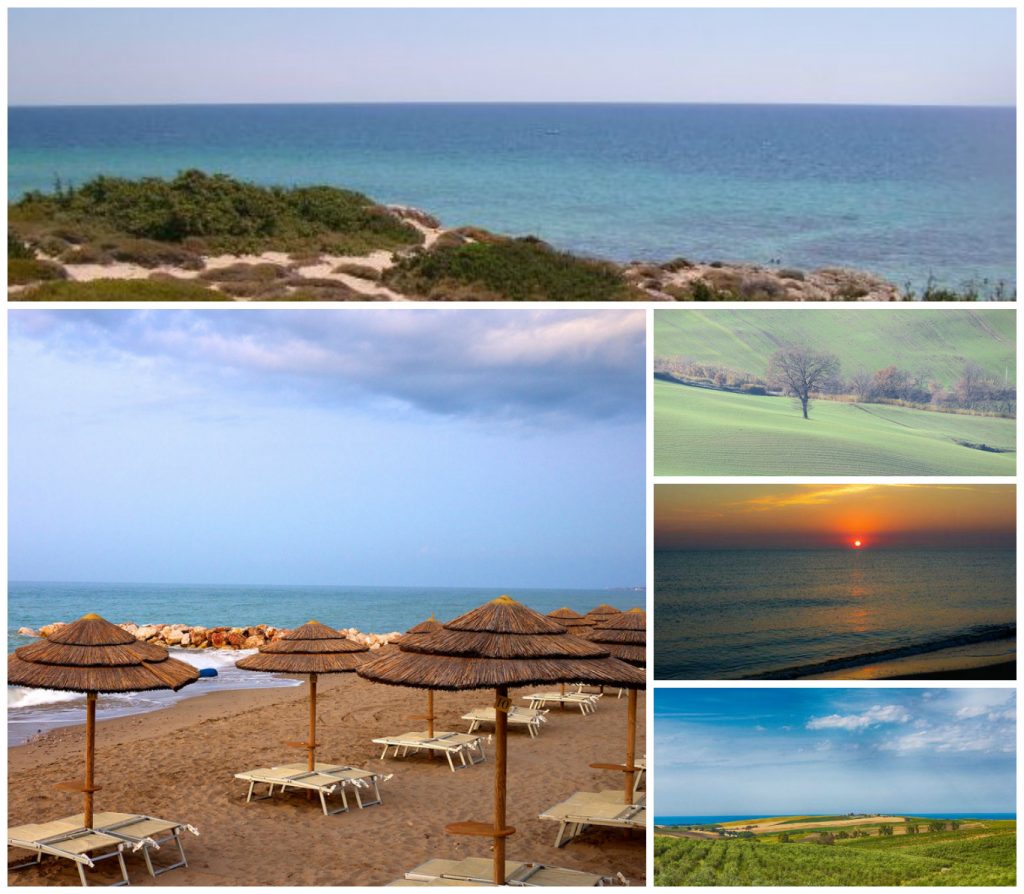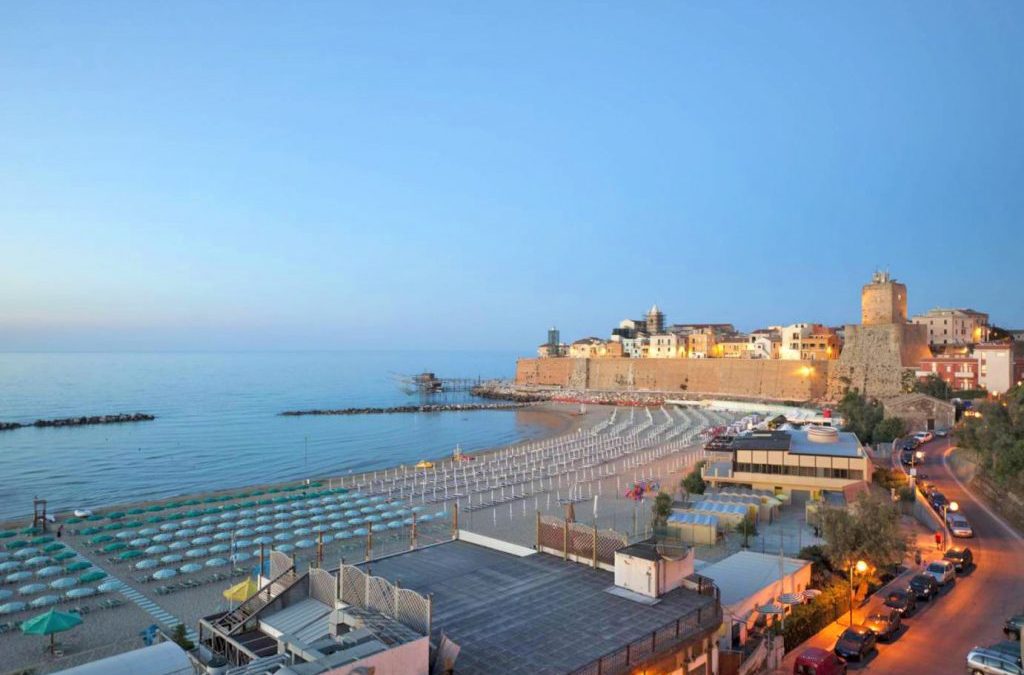Termoli is a big town with a population density of 33,532 inhabitants in the province of Campobasso, Molise, overlooking the Adriatic Sea and has a height ranging from 0 to 178 meters above sea level. Geographically it is located between the river Biferno (south) and the stream Sinarca (north) both torrential. It is characterized by the presence of a promontory on which stands the ancient village, surrounded by a wall that falls on the sea.
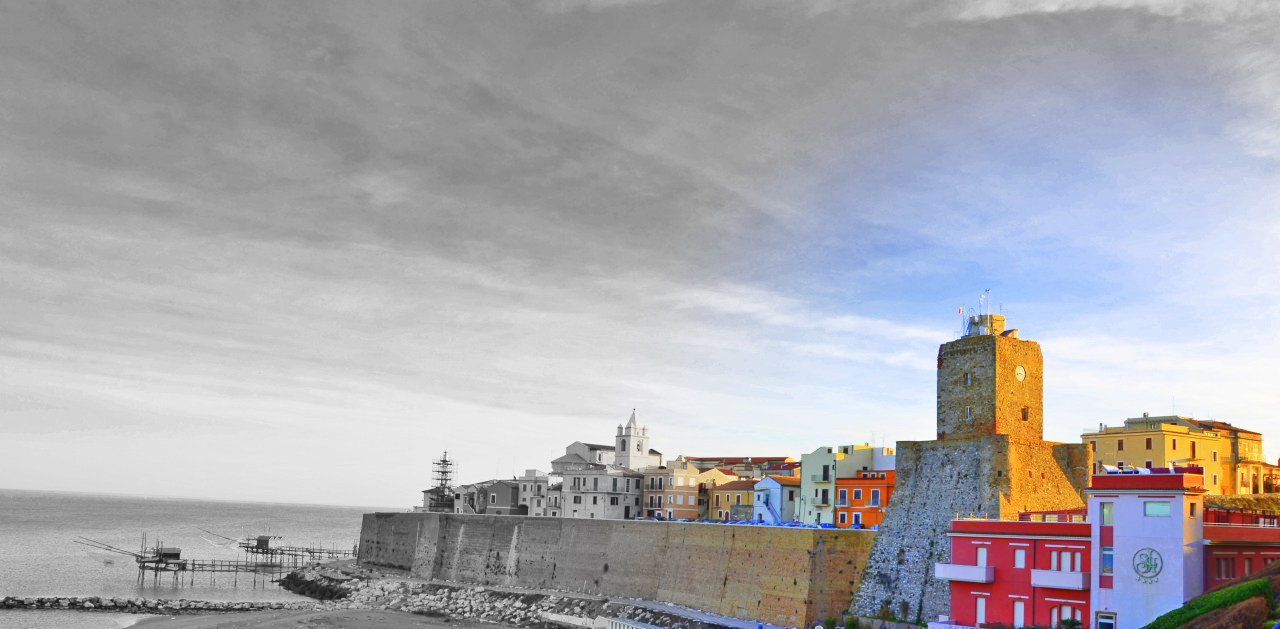
The town of Termoli is now stretches along the coast and inland, but its driving force is the promontory on the Adriatic Sea, home of the characteristic Borgo Antico dating back the fifth century and which many say remember the shape of a heart other than a fist, the village looks like an intricate maze of narrow, winding streets, including the famous Vico II Castello called REJECELELLE, the lane, is located in the alleys of the old town and it is a surprise find it in front continuing to explore and discover the secrets of the ancient seaside town of Termoli. Ranked among the narrow streets of Europe, as if to make use of every square meter available to the small space.
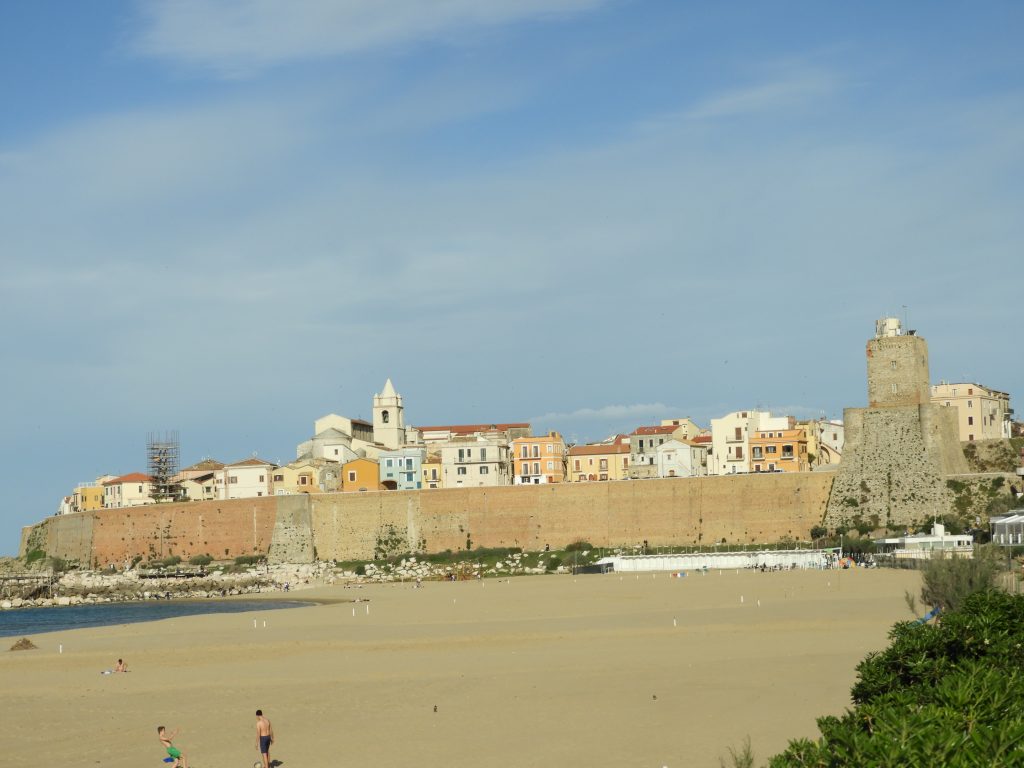
Photo Michele Crisci
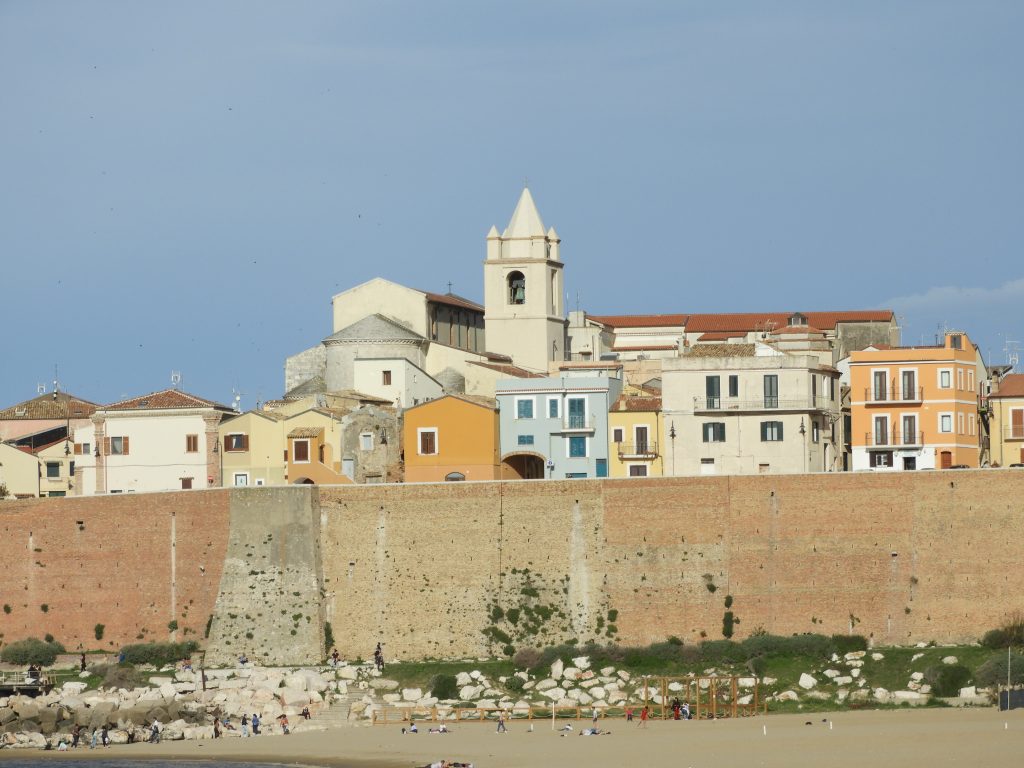
Photo Michele Crisci

Photo Michele Crisci
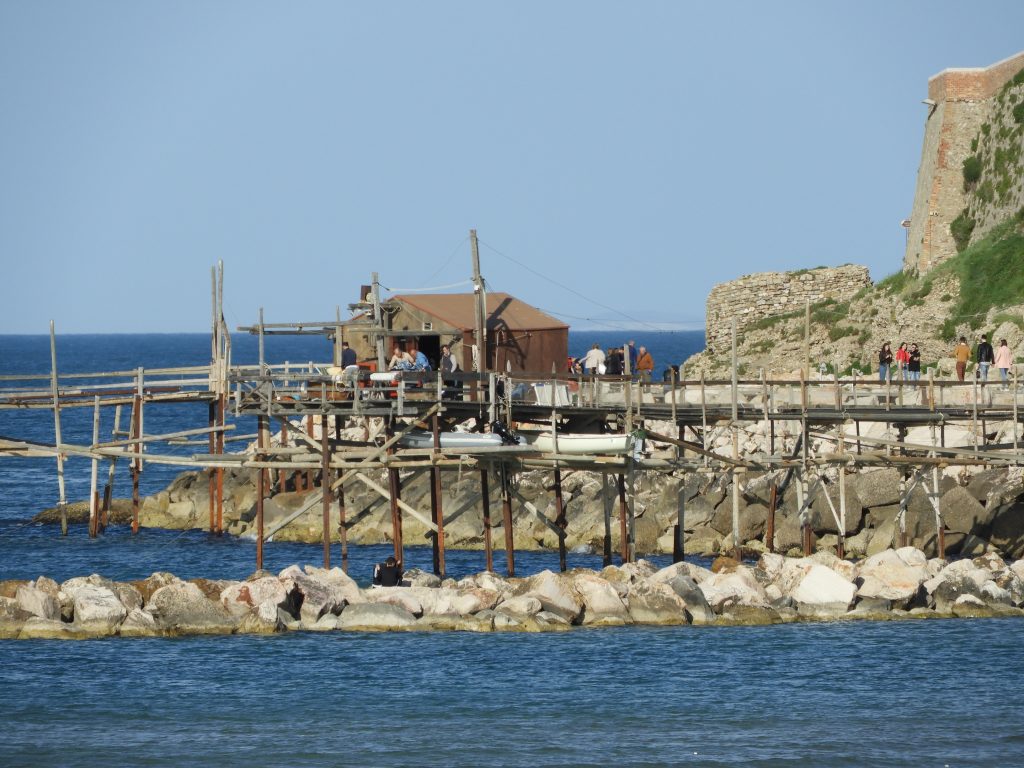
Photo Michele Crisci
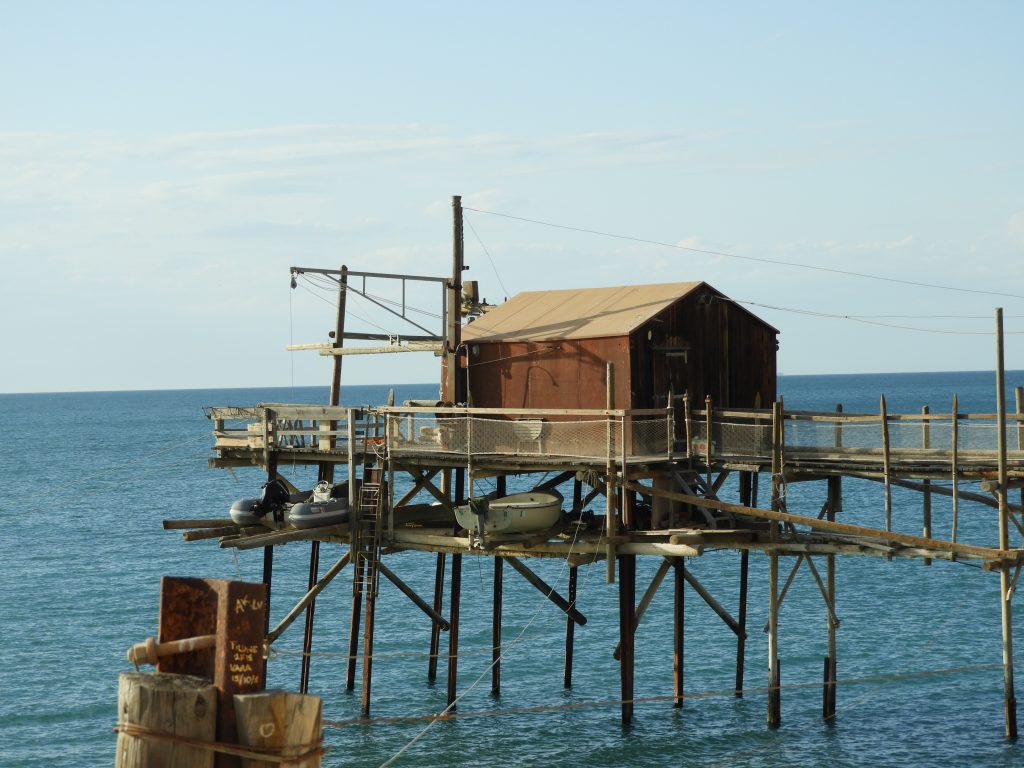
Photo Michele Crisci
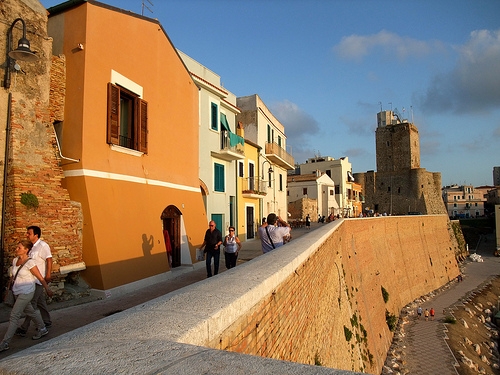
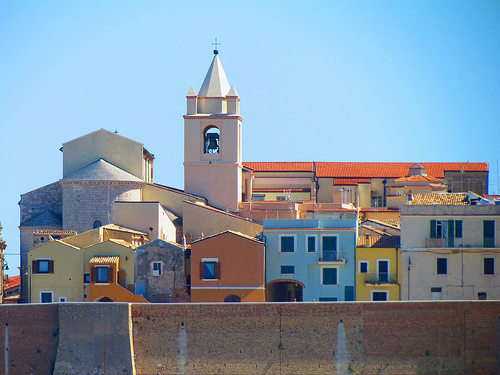
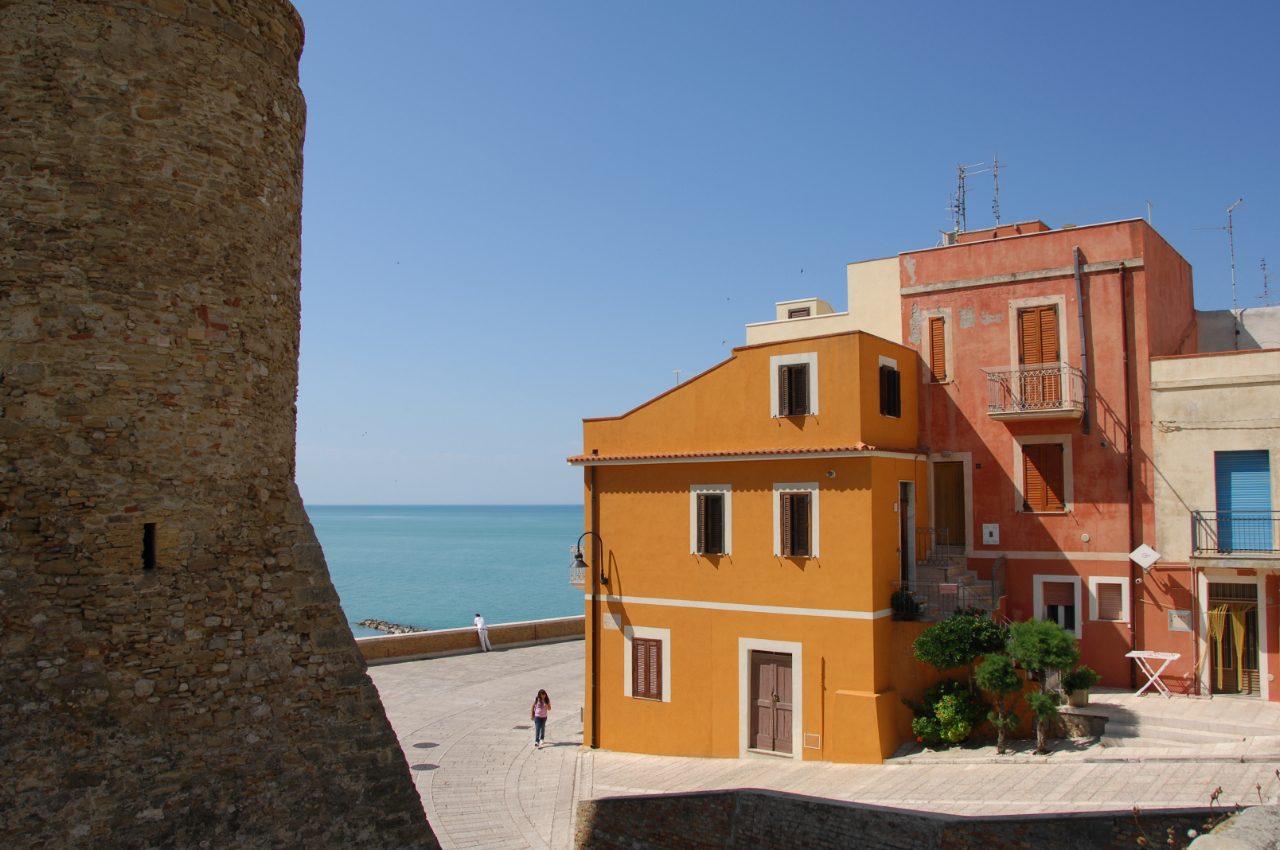
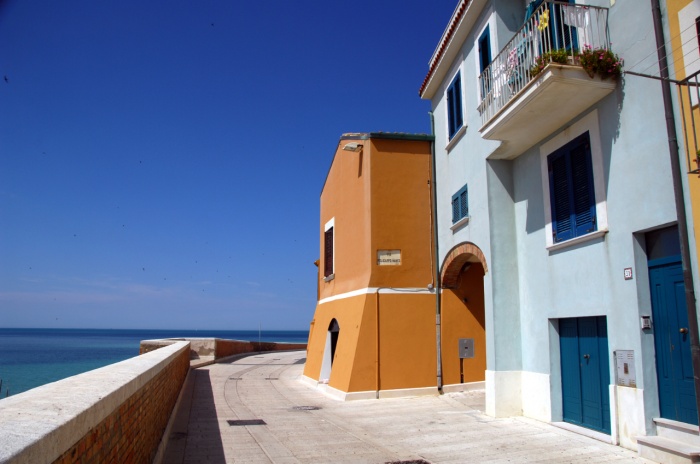
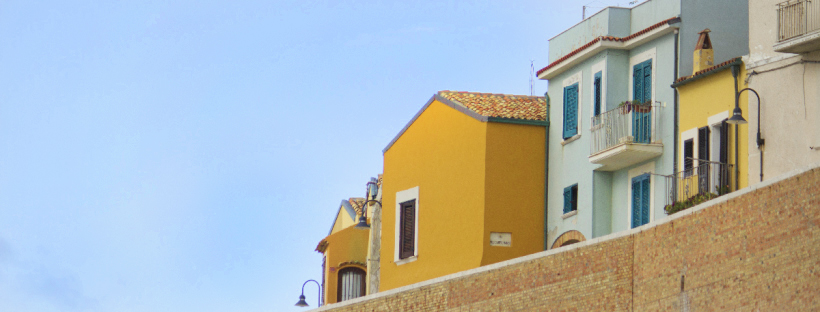
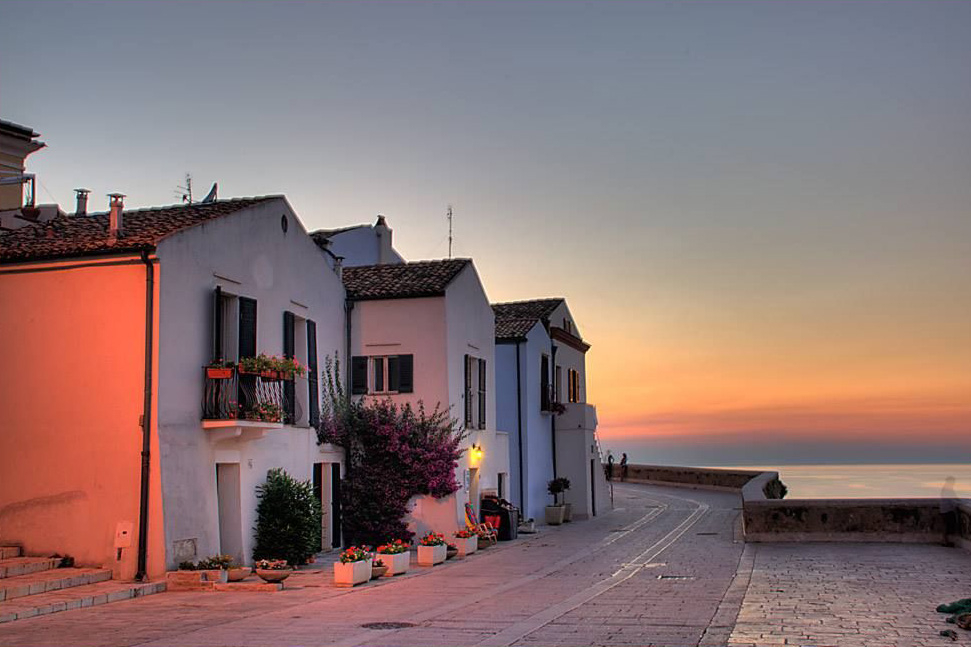
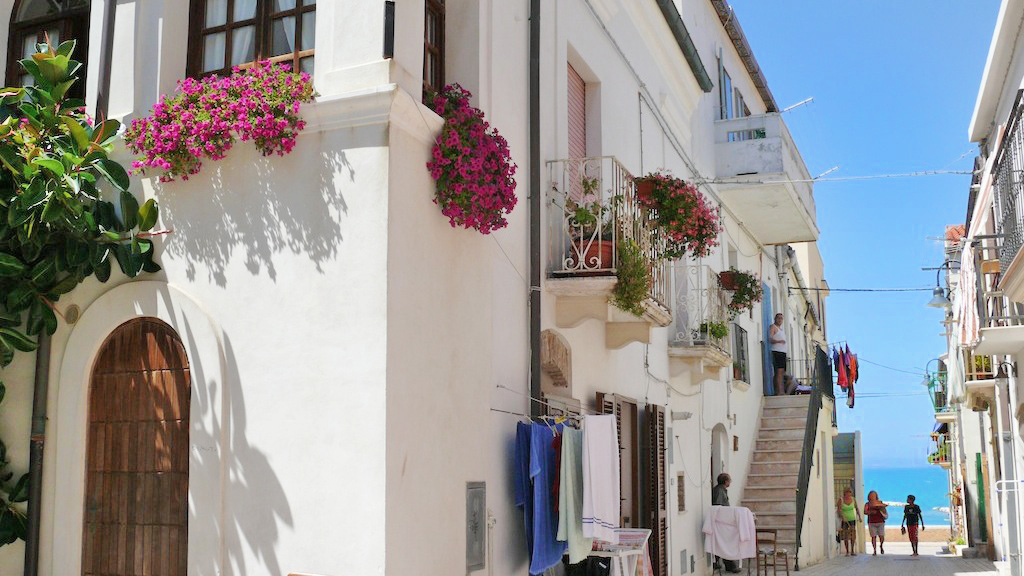
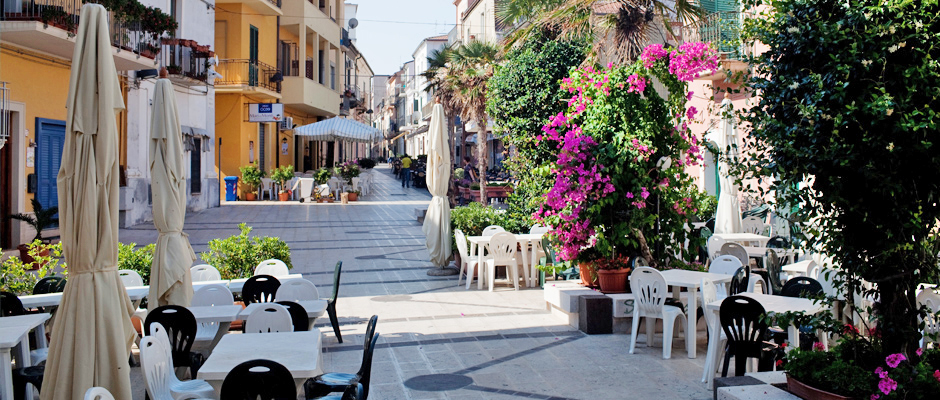
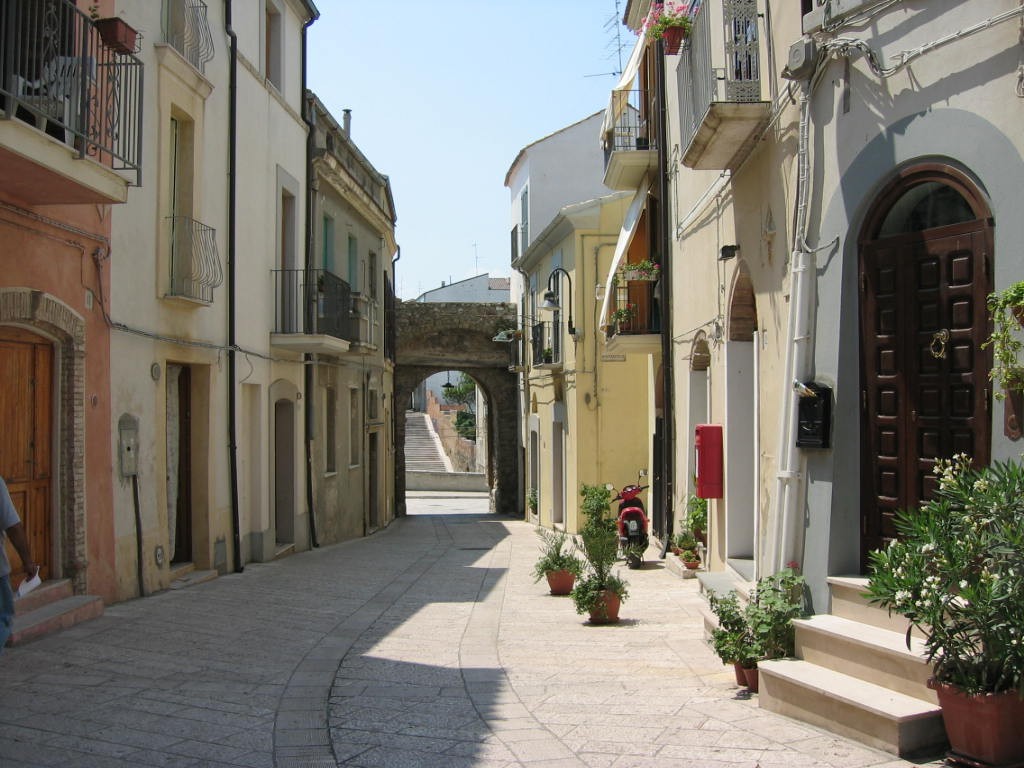
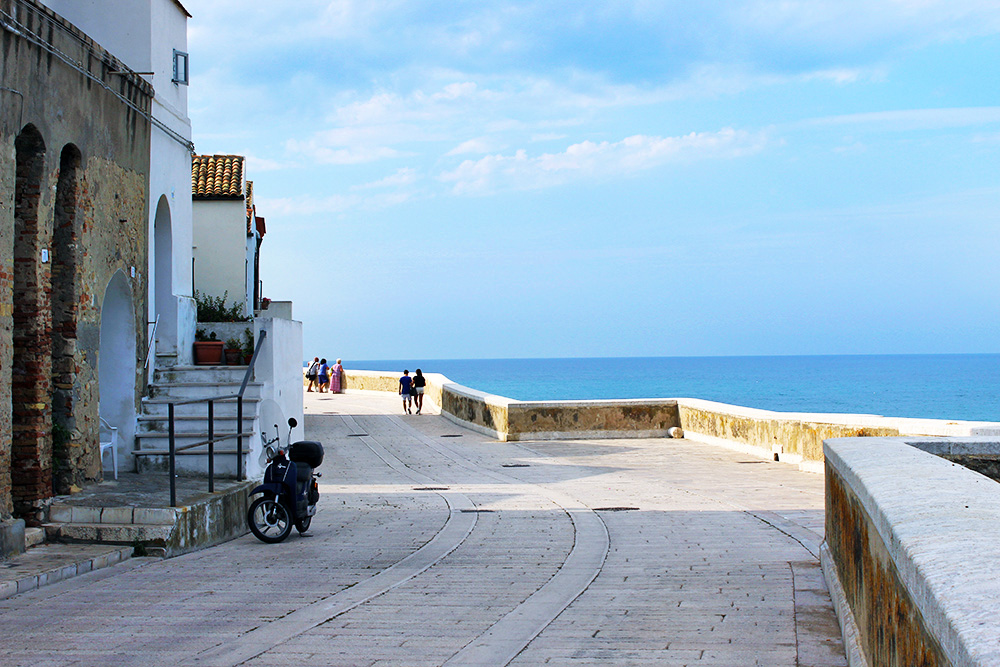
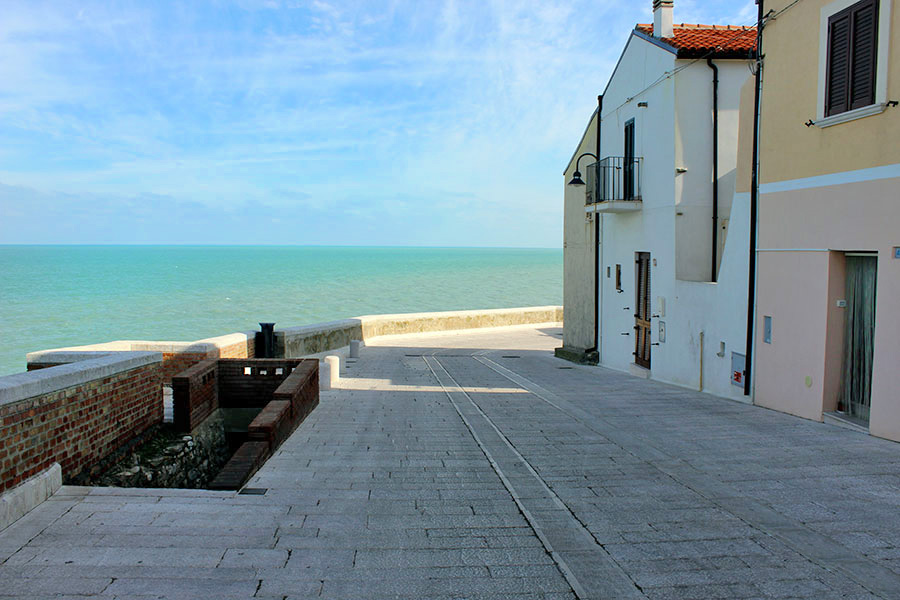
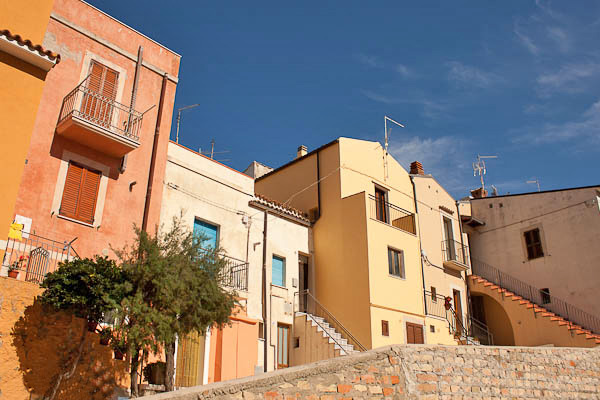
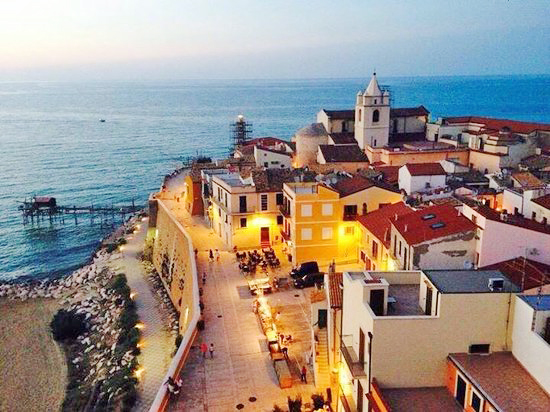
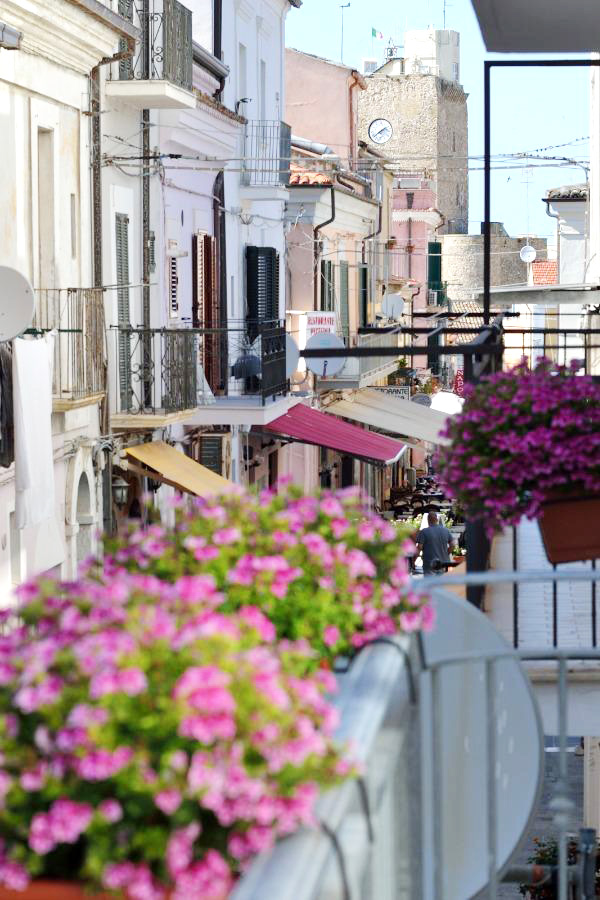
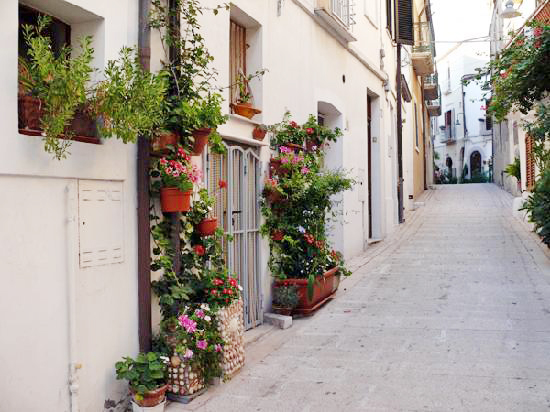
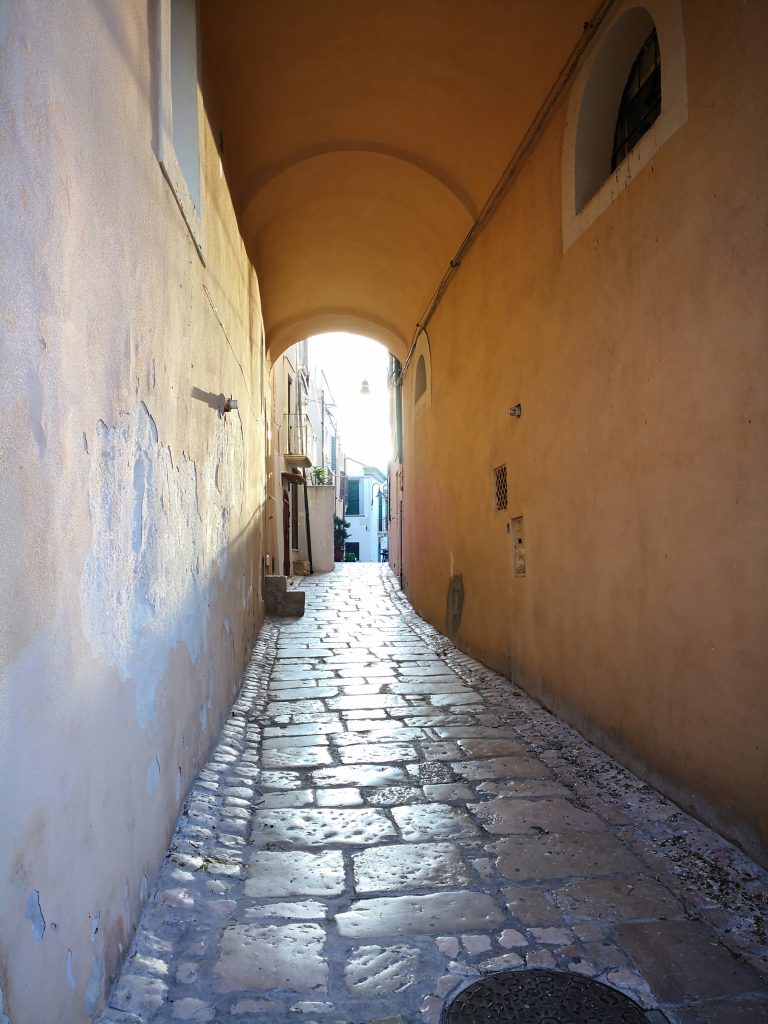
Photo Michele Crisci
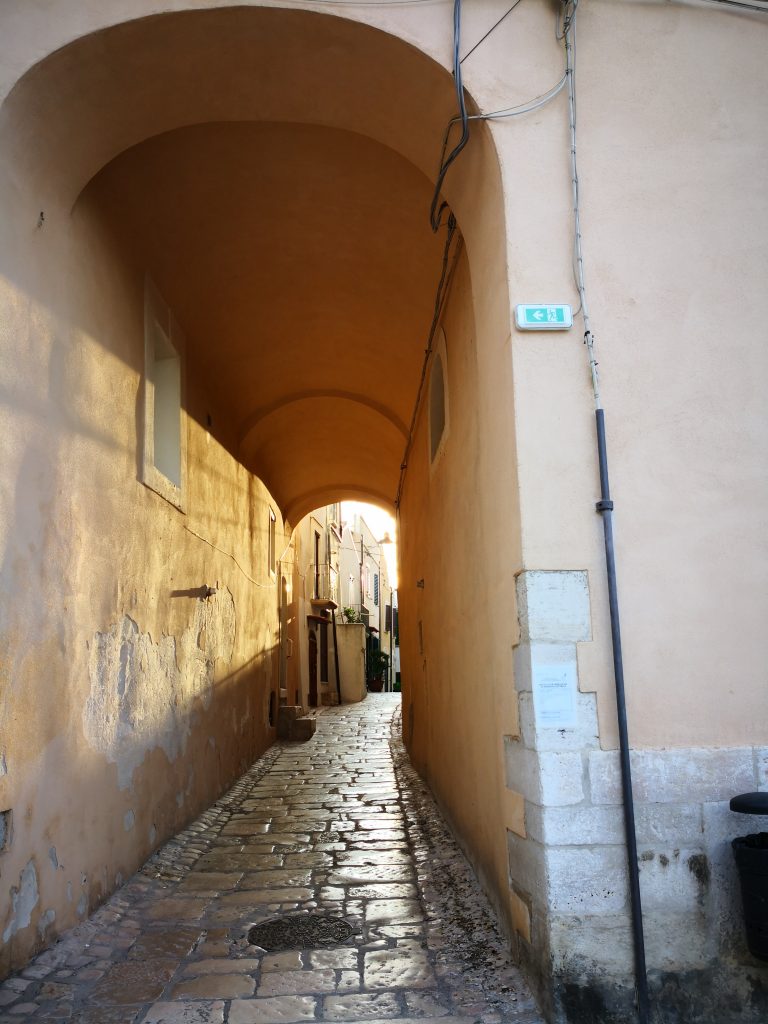
Photo Michele Crisci
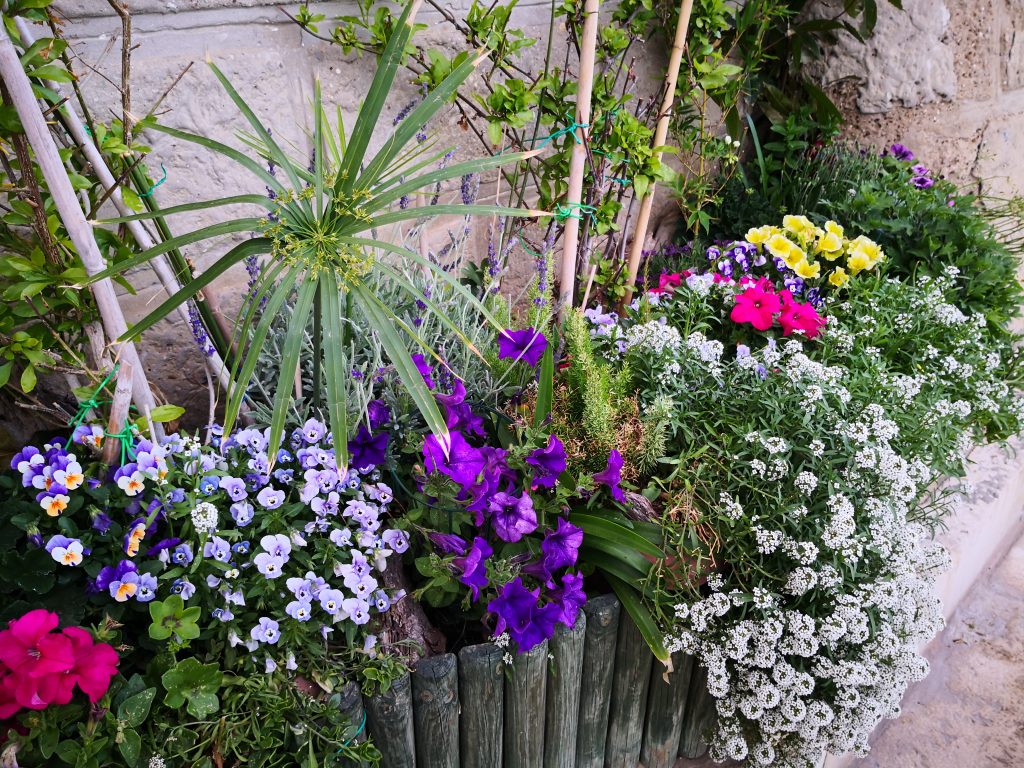
Photo Michele Crisci
Since 1765 many things have changed and now more than ten years has begun the architectural renovation and development of the village. Today seems like a case where the renovated houses, but always in perfect style with the village, preserve the history of centuries. There are two entrances to acess the village, one on the north side, at the foot of the castle, and one on the side of the port, characterized by an arched door, and from the Belvedere tower from which you can admire the view of the harbor and the beach south Termoli.
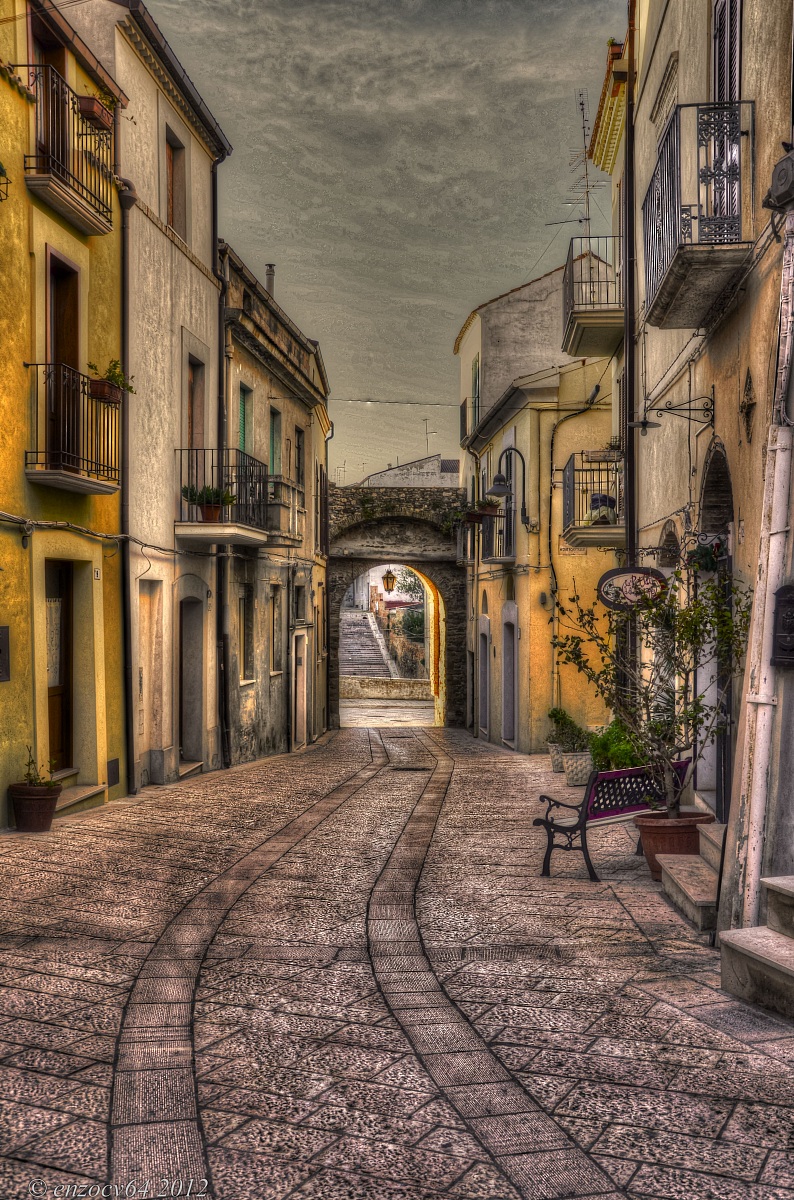

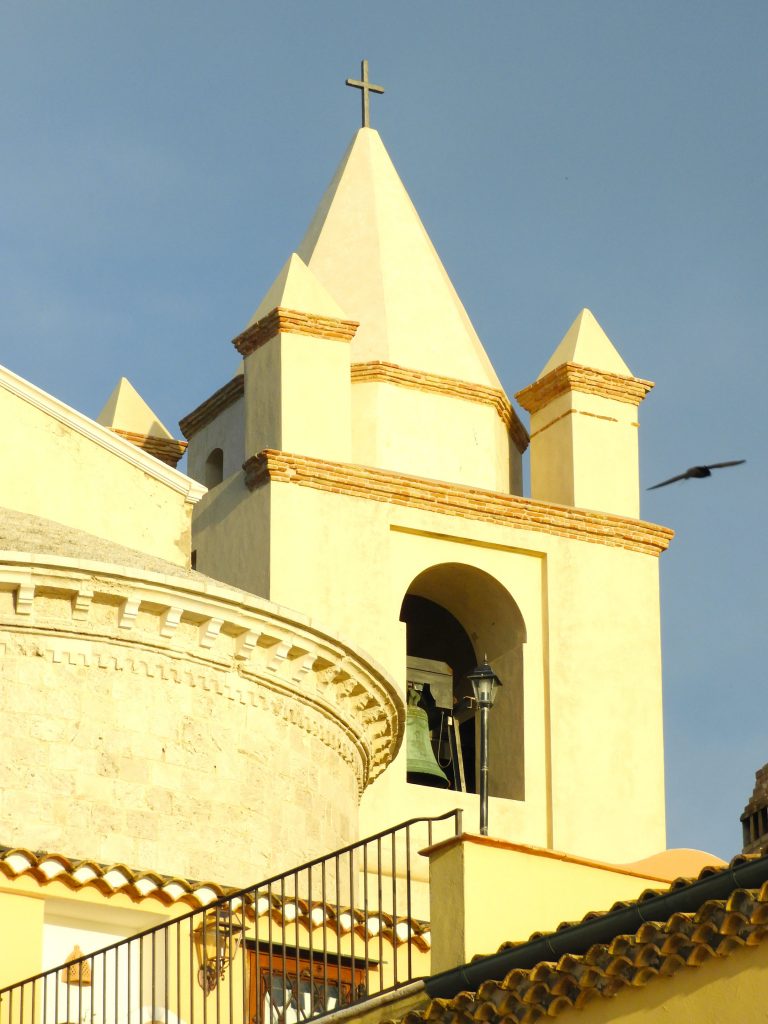
Photo Michele Crisci
BEACHES
The beaches are one of the most valuable resources of Termoli with soft and fine sand and compact grain that make them particularly suitable for children and sports.
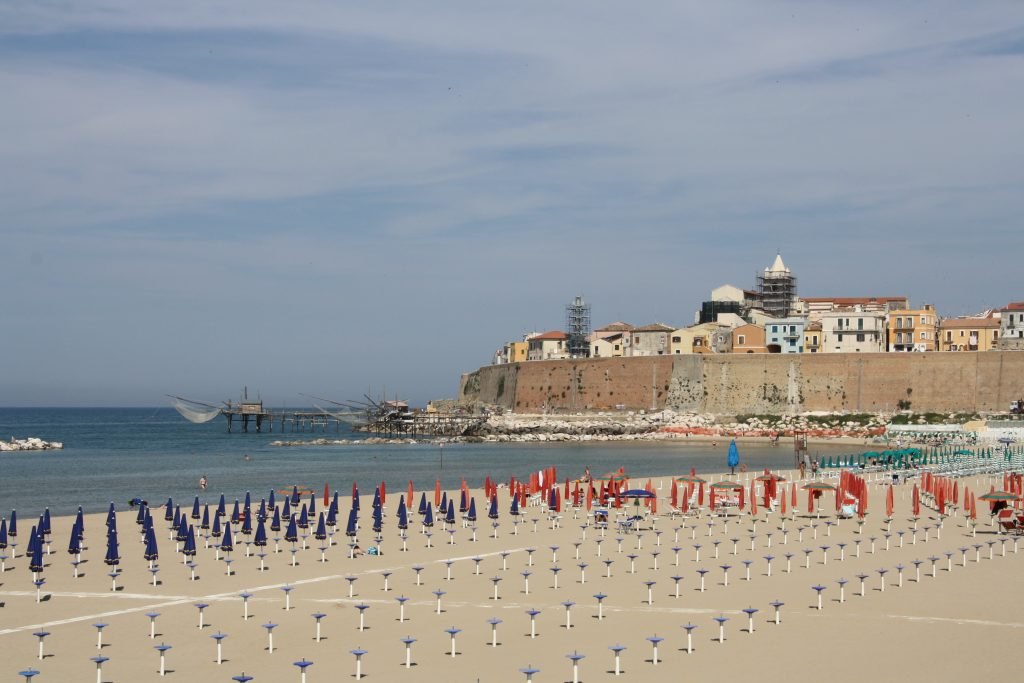
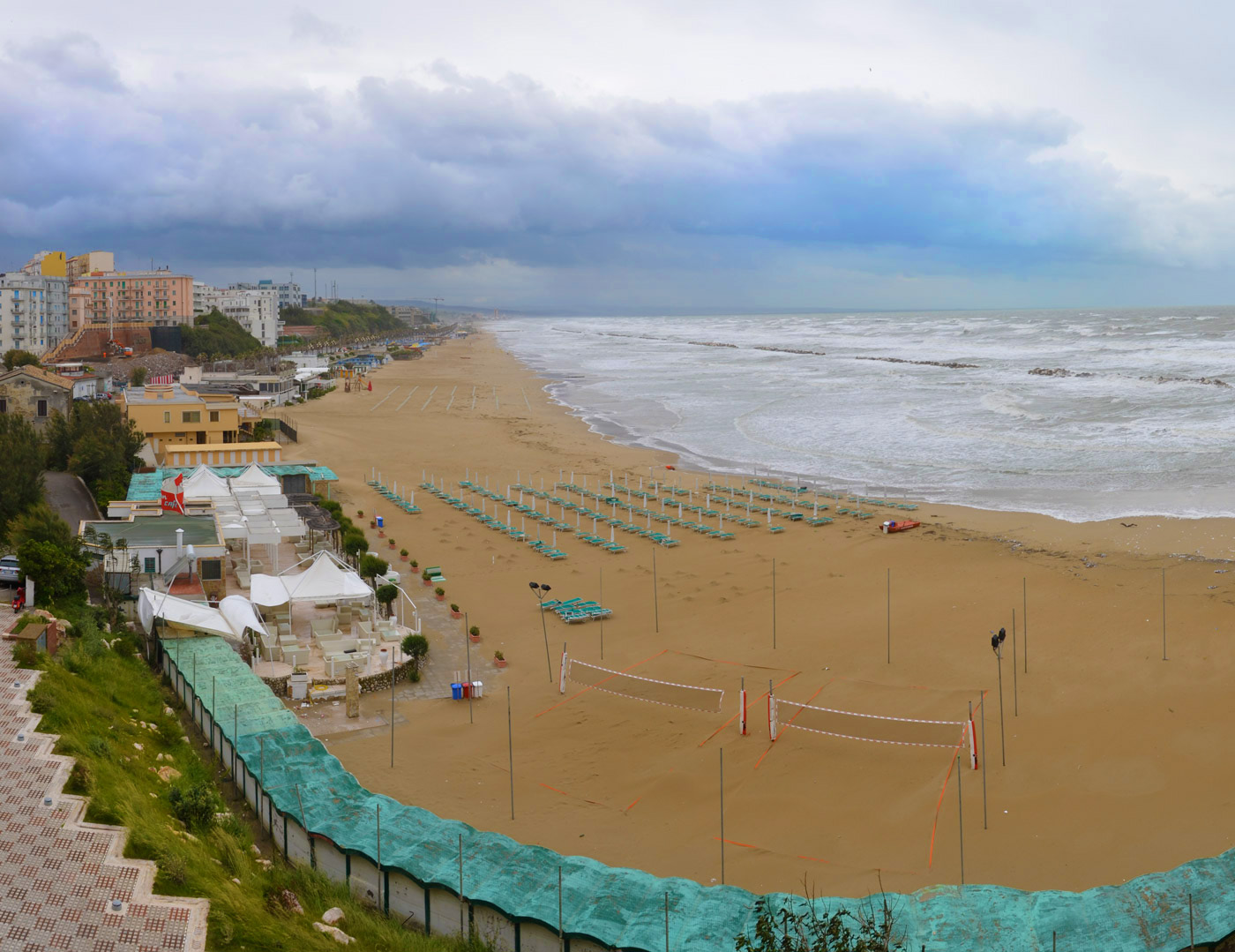
Arenili wide and water that gently slopes into the deep sea make pleasant the stay on the beach and safe bathing in the sea.
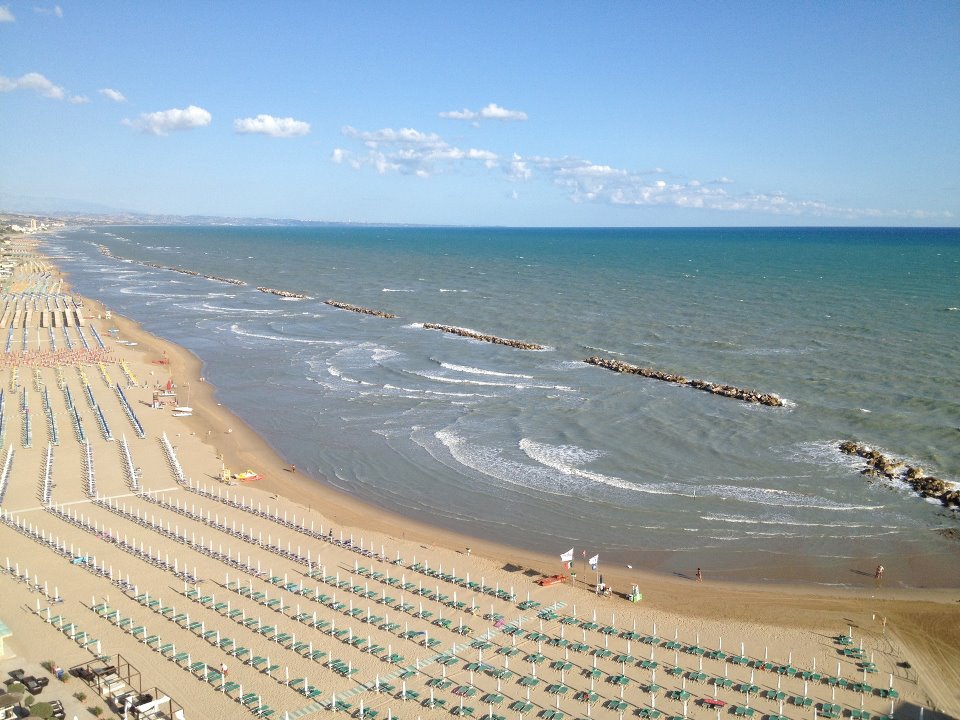
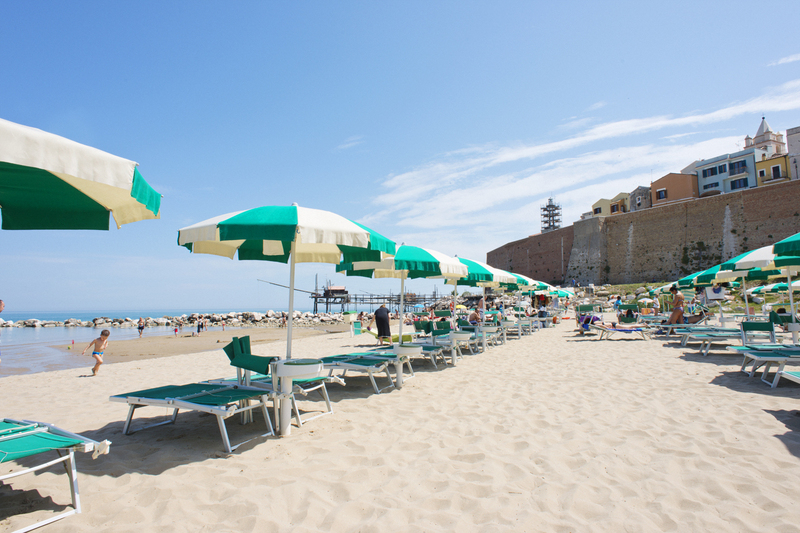
The north beach of Termoli, dedicated to St. Anthony sees countless lidos that offer various services to tourists and, in particular, for families with children. The beach south of Termoli, one in Rio Vivo (San Pietro) Marina is characterized by a very wide beach to the point that the lidos frequently host beach volleyball and beach tennis.
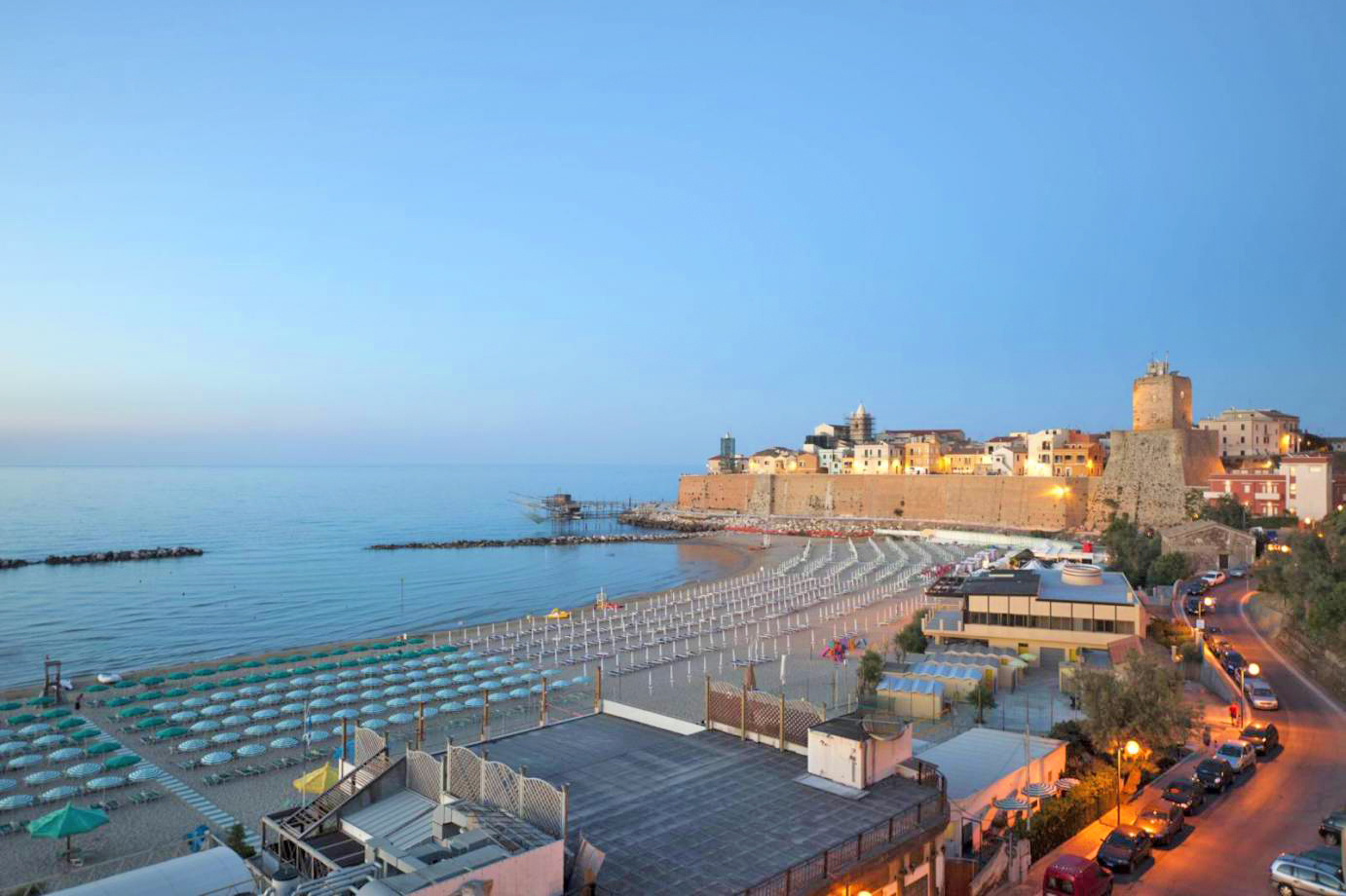
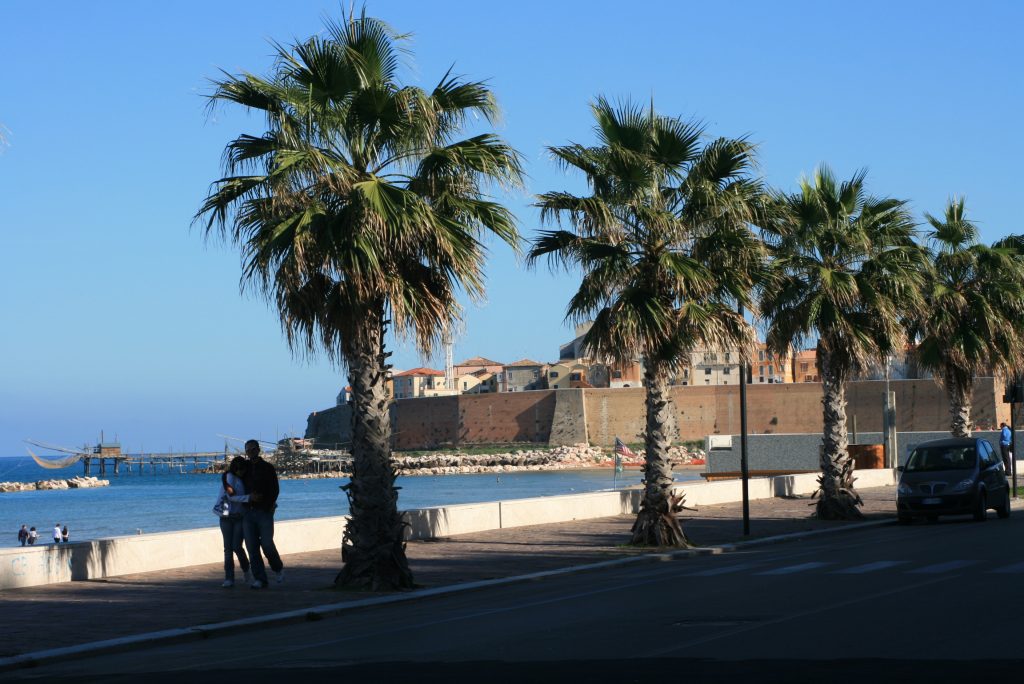
Both of Termoli coasts are known to surfers from all over Italy; depending on the type of wind fact, surfers and kyte surf will gather on the coast of Rio Vivo, or on that of Sant ‘Antonio to brave the wind and waves.
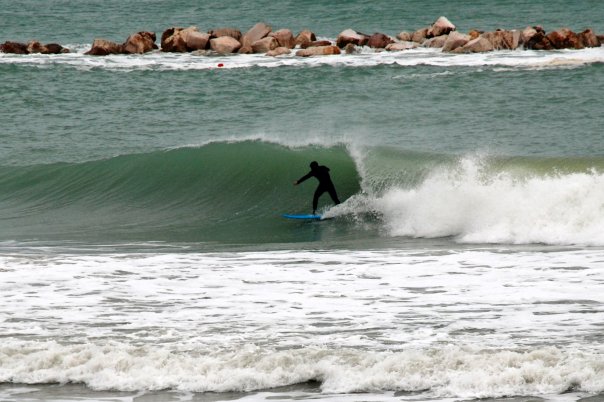

TRABOCCHI
Charming old fishing machines. These are the overflow (Trabocco), which once allowed the fishermen and their families to fish even when rough seas prevented the boats heading out to sea.
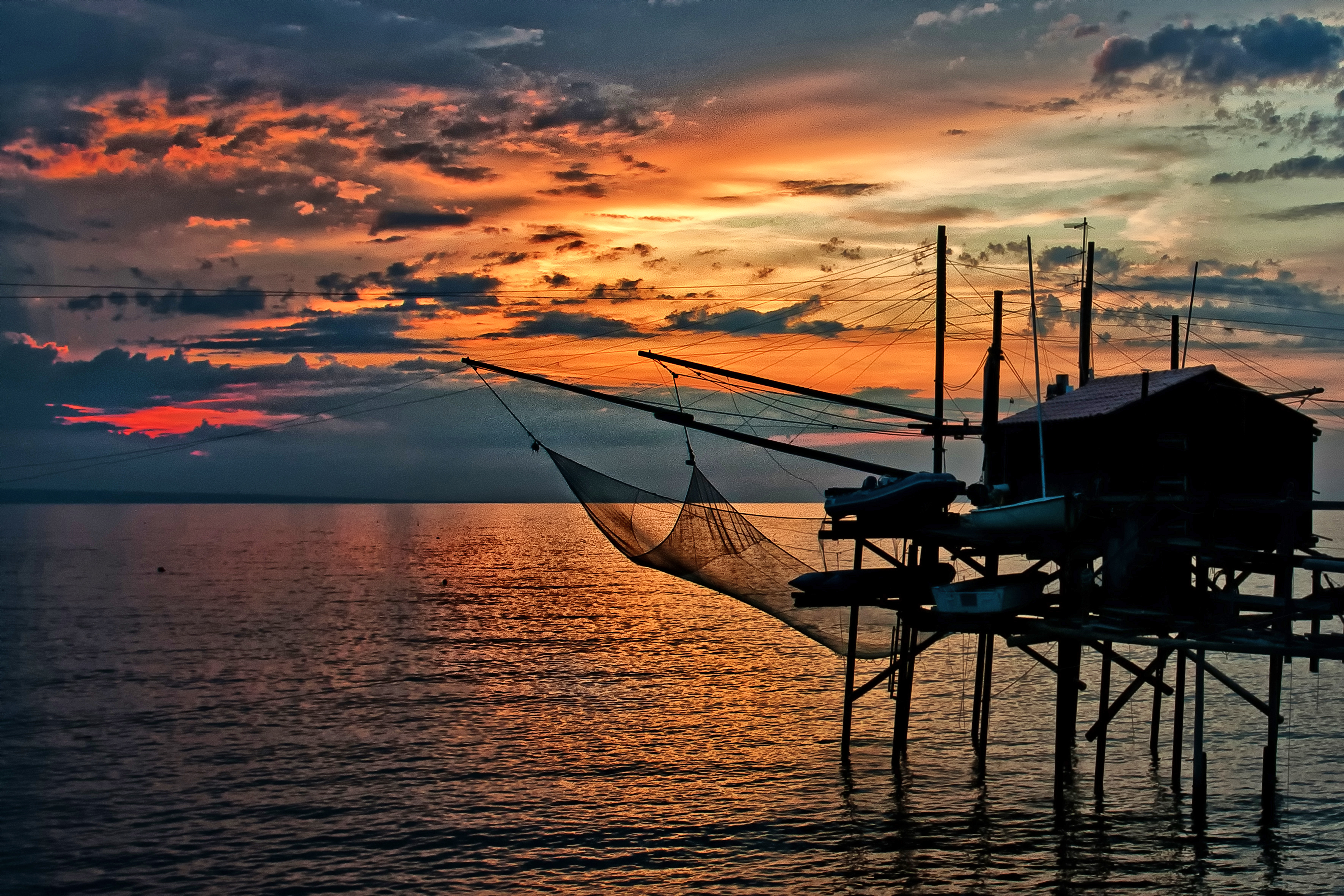
The first overflow of Termoli was built around 1850 by Felice Marinucci he had seen this type of construction in Abruzzo, where he often went for business reasons.
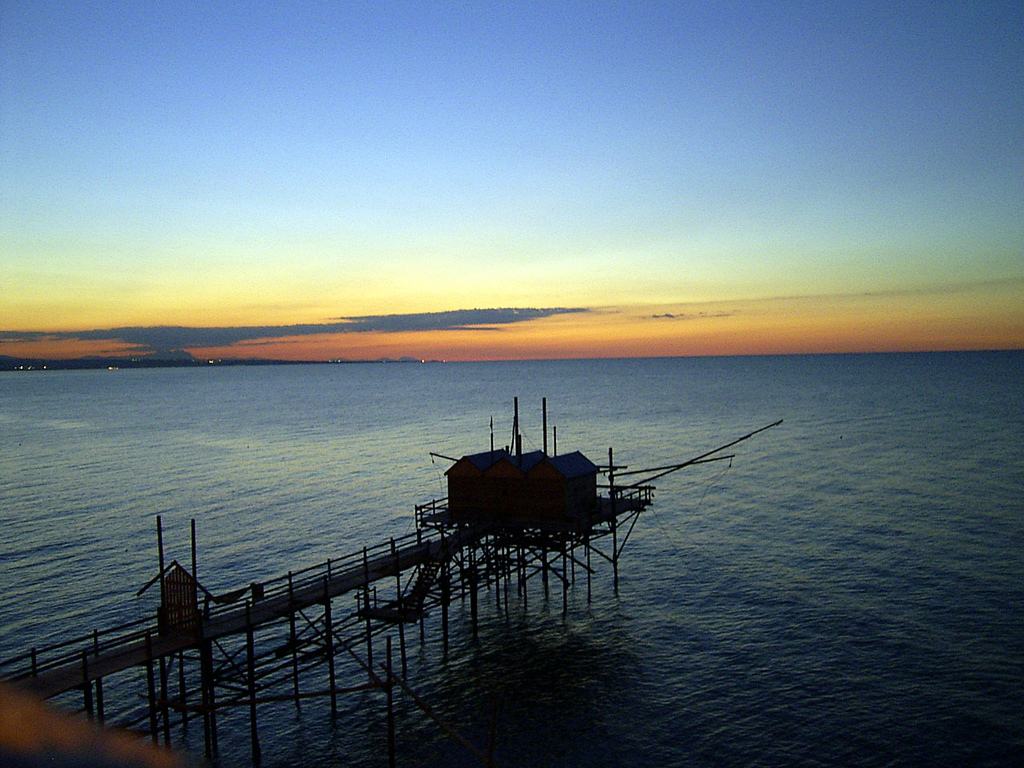
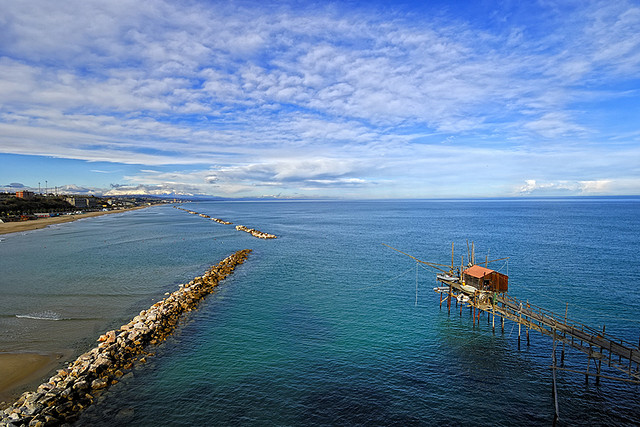
Today overflows are among the symbols that characterize the city of Termoli. To observe them in all their beauty you can take the ‘Walk of Trabocchi’ that from the foot of Castle Svevo winds along the walls of the ancient town until arriving at Porto.
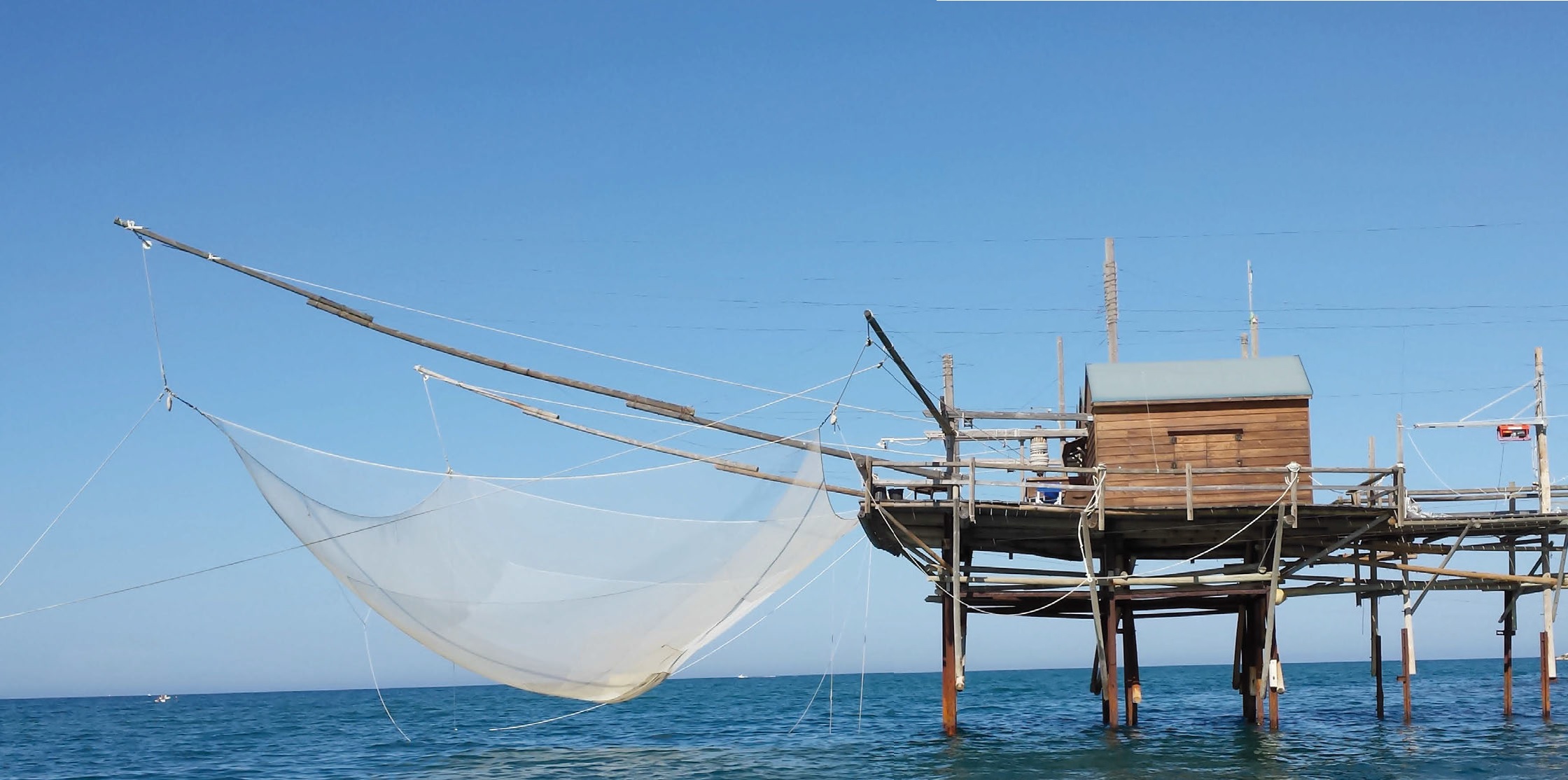
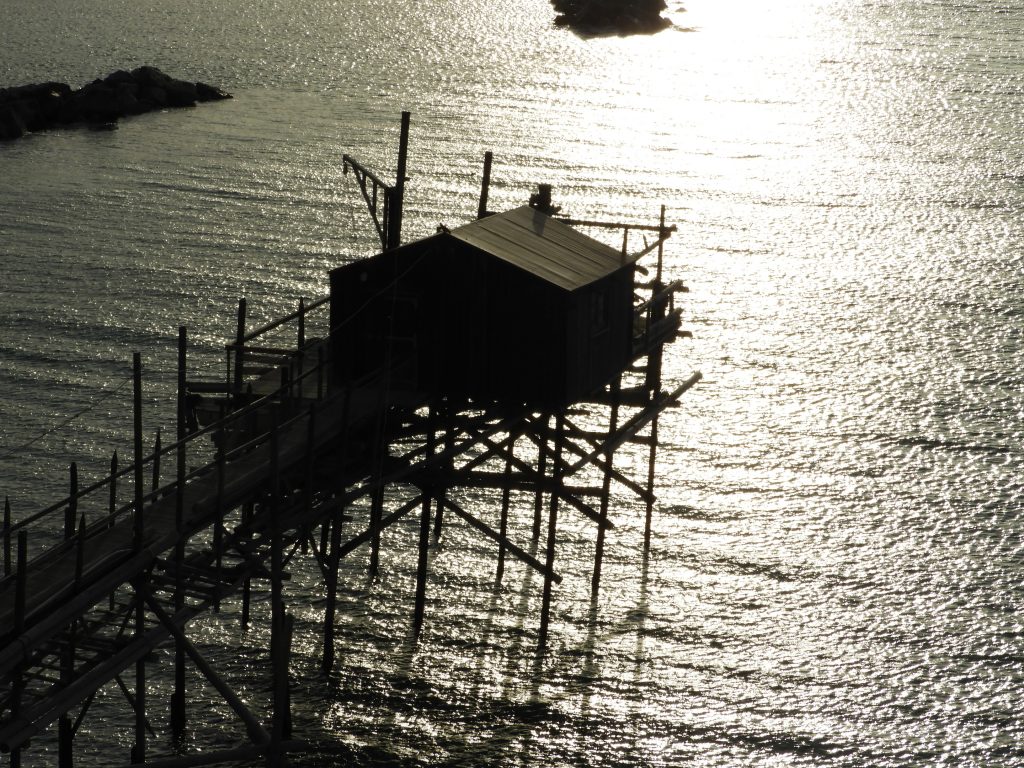
Photo Michele Crisci
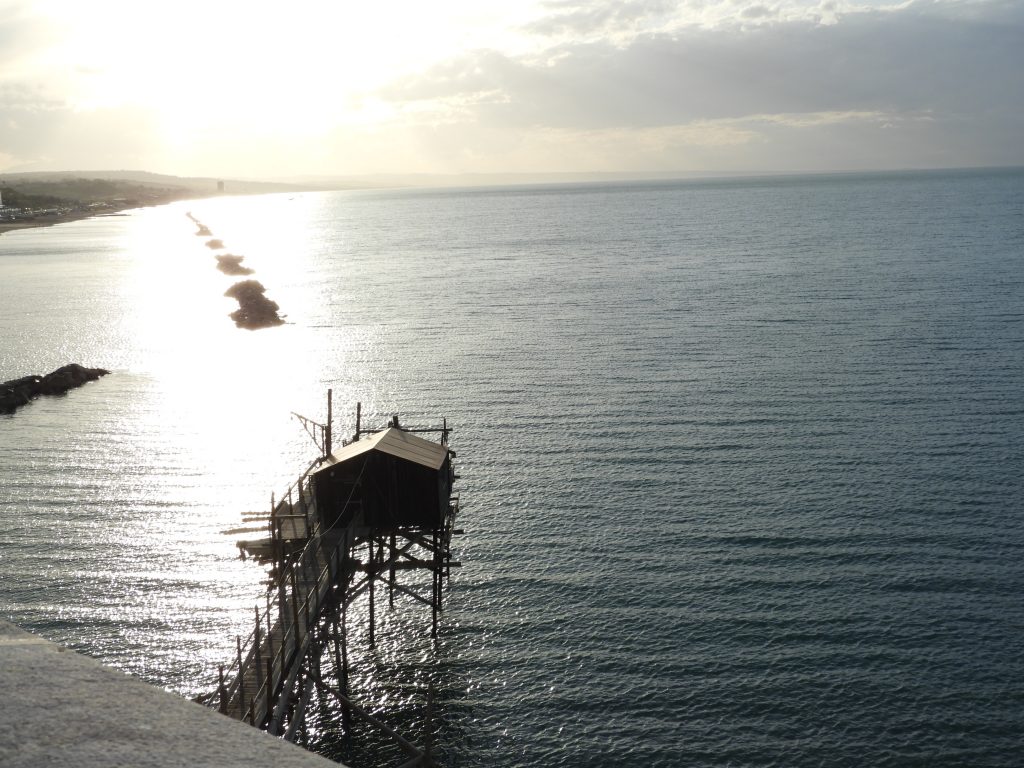
Photo Michele Crisci
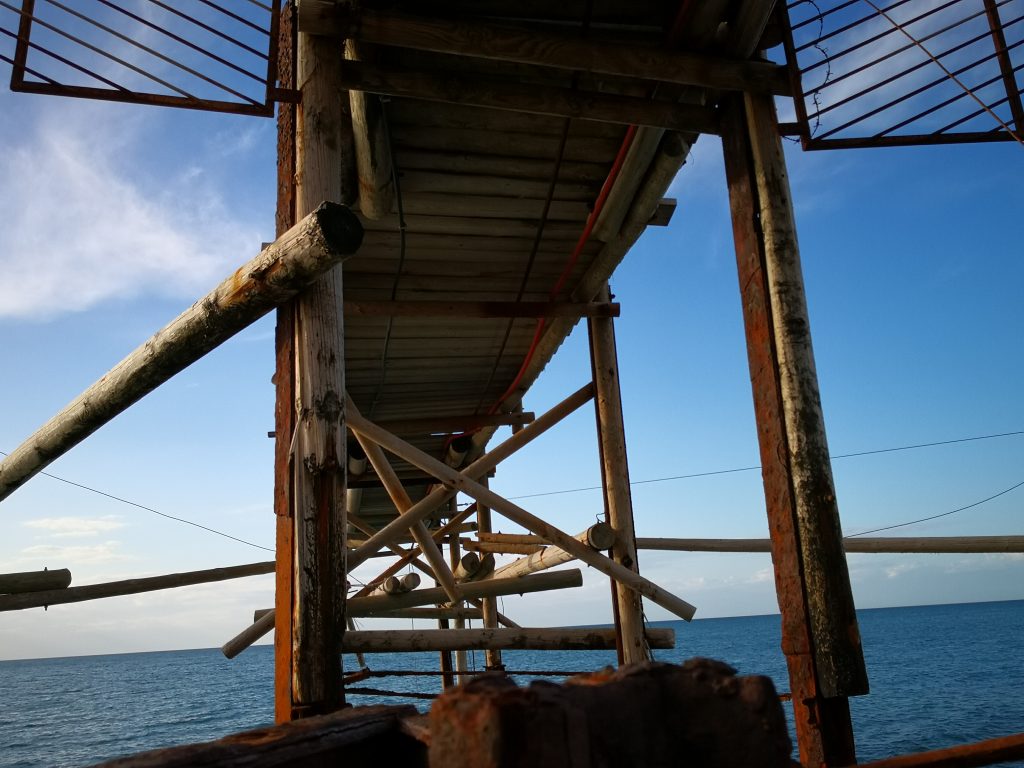
Photo Michele Crisci
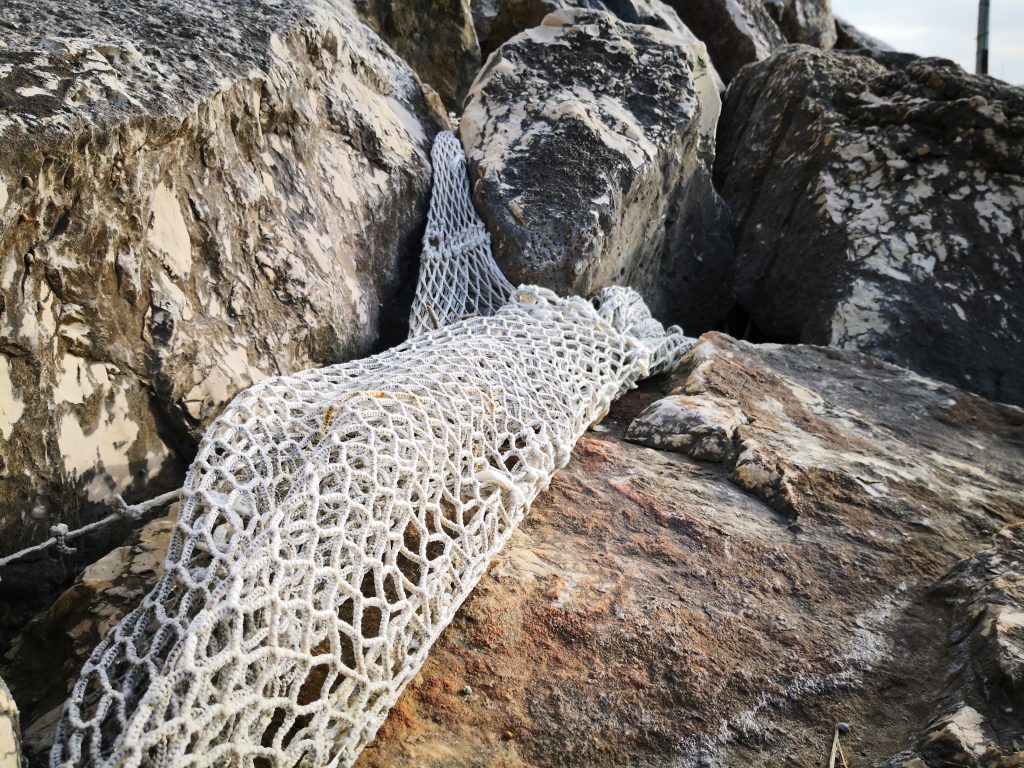
Photo Michele Crisci
CASTELLO SVEVO
The Svevo Castle and its silhouette standing out against the sky is one of Temoli symbols.
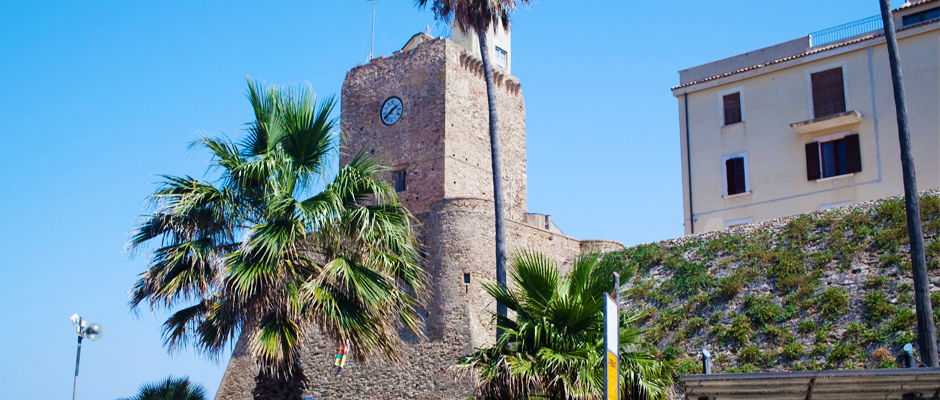
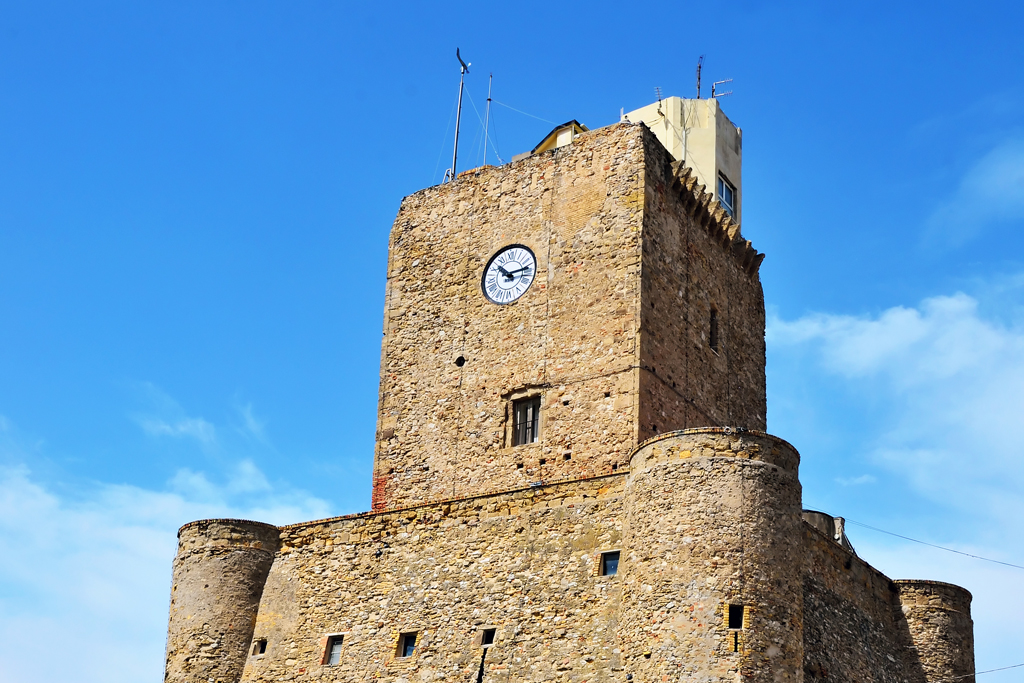
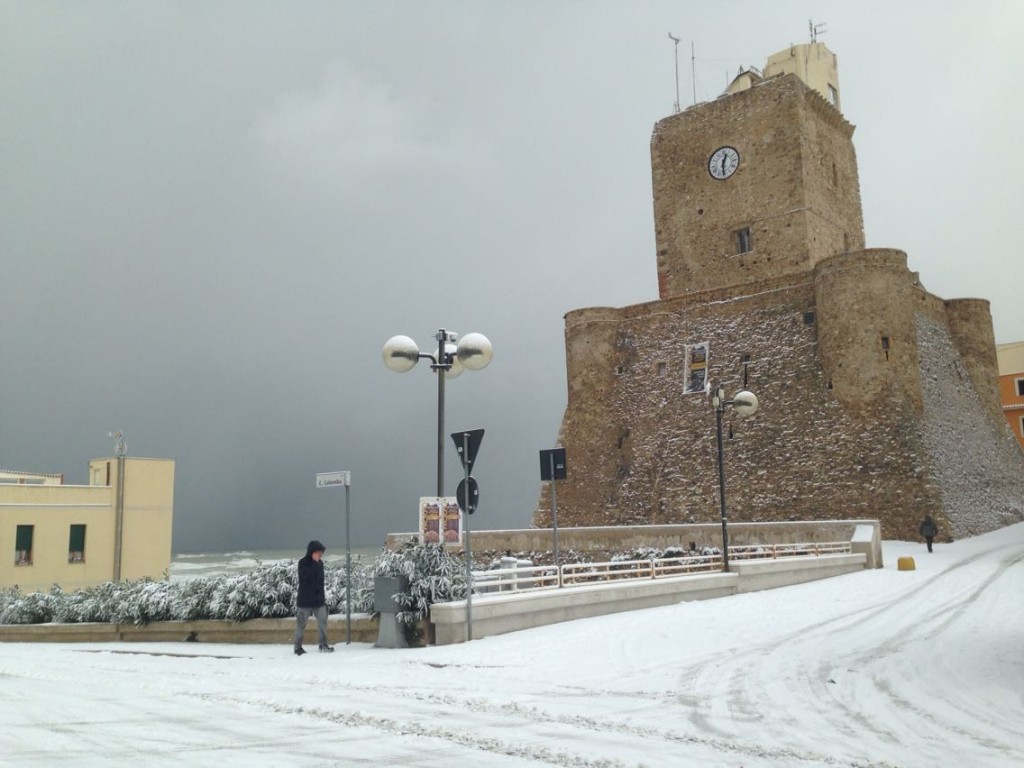
The architectural features suggest that the castle was built in Norman times, entirely of limestone and sandstone, near a pre-existing Lombard tower. However, the “Swabian” definition seems to have been given following the restructuring and fortification built by Frederick II of Swabia in 1240, after the damage caused by an attack of the Venetian fleet.
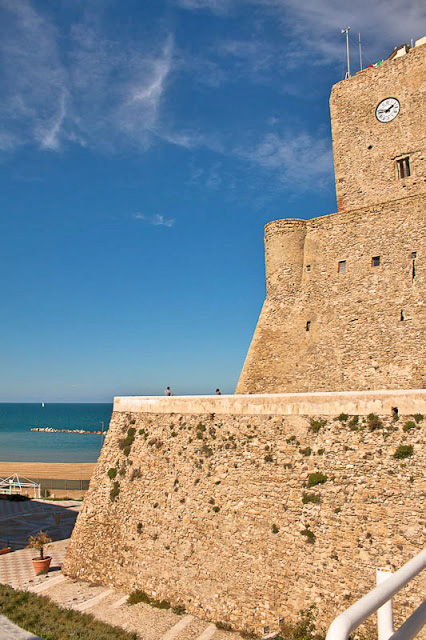
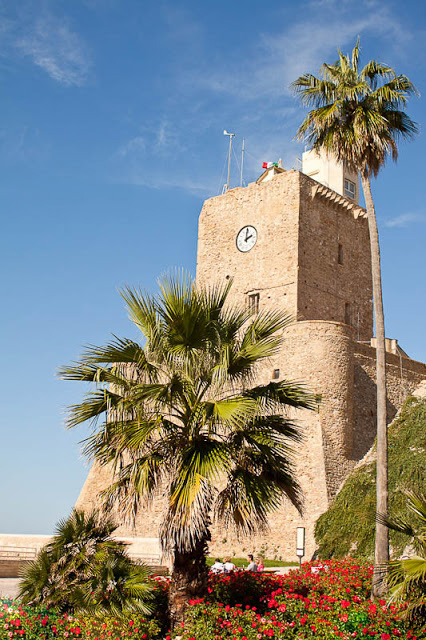
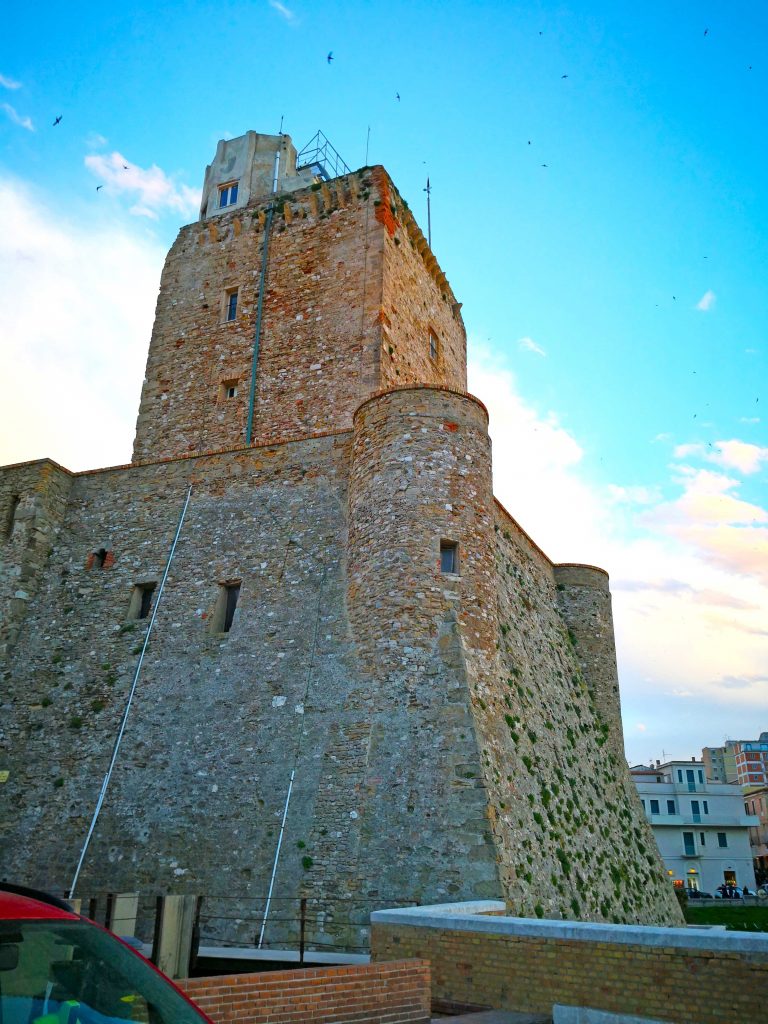
Photo Michele Crisci
Termoli Castle was part of a larger defense system, consisting of walls that surrounded the entire perimeter of the city and several crenellated towers, one of which has been preserved intact and it is located at the entrance of the ancient town. The Castle today hosts exhibitions and cultural events and is an especially popular location for the celebration of civil marriages.
CATHEDRAL
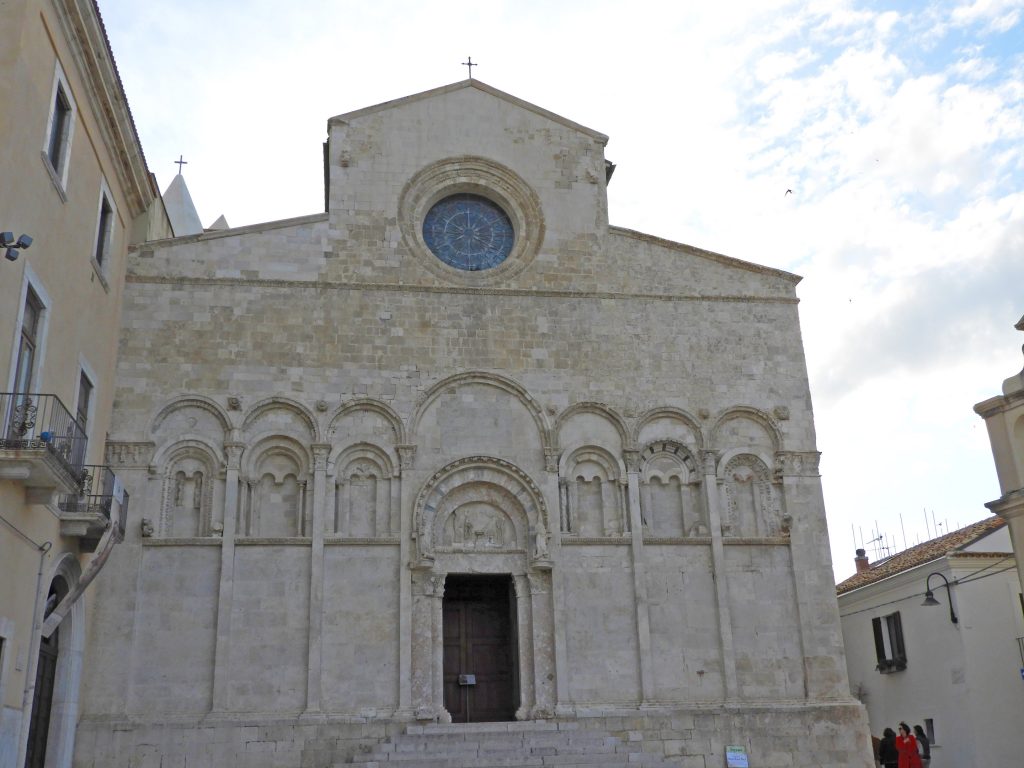
Photo Michele Crisci
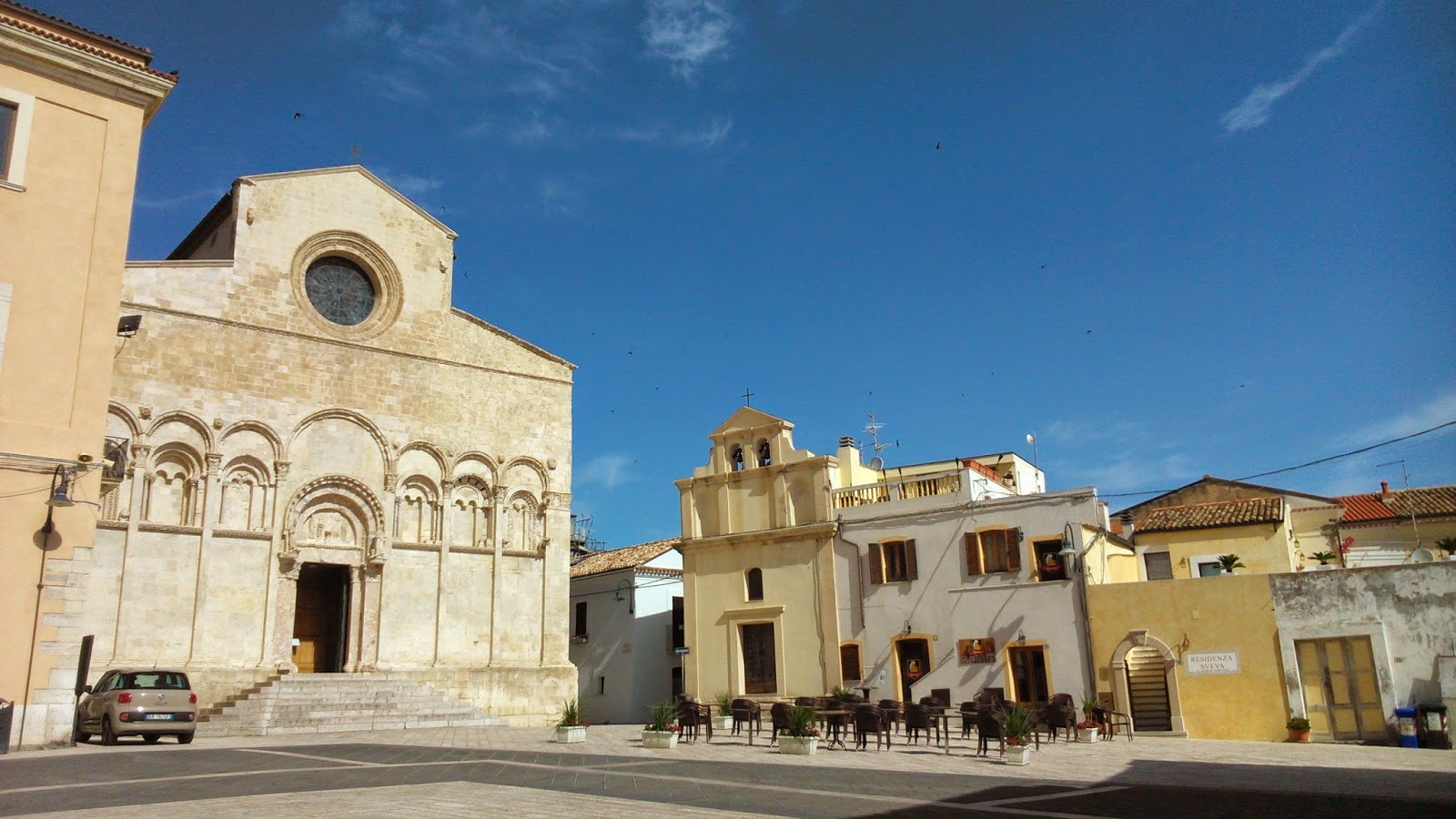
The Cathedral of Termoli, located in the central square of the ancient town, is dedicated to Saint Mary of the Purification built between the XII and XIII century, is an example of Romanesque architecture, for centuries home to the relics of St. Basso and San Timoteo patrons.
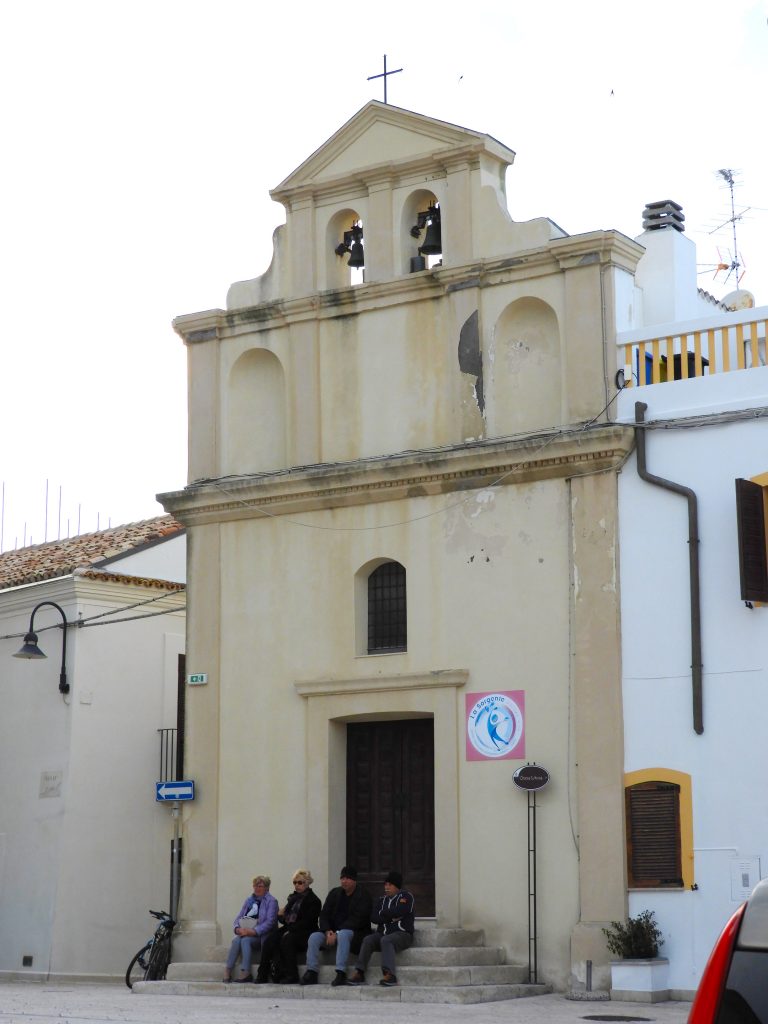
Photo Michele Crisci
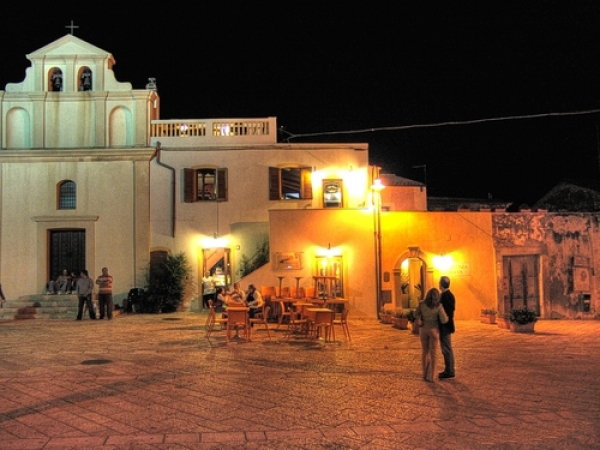
In 1456 the highest part of the façade was destroyed by the earthquake and later, in 1566 from invasion by the Turks. Additional parts of the Baroque style were eliminated between 1930 and 1969 during the restoration of the Cathedral which restored the original Romanesque style.
MONTECASTELLO
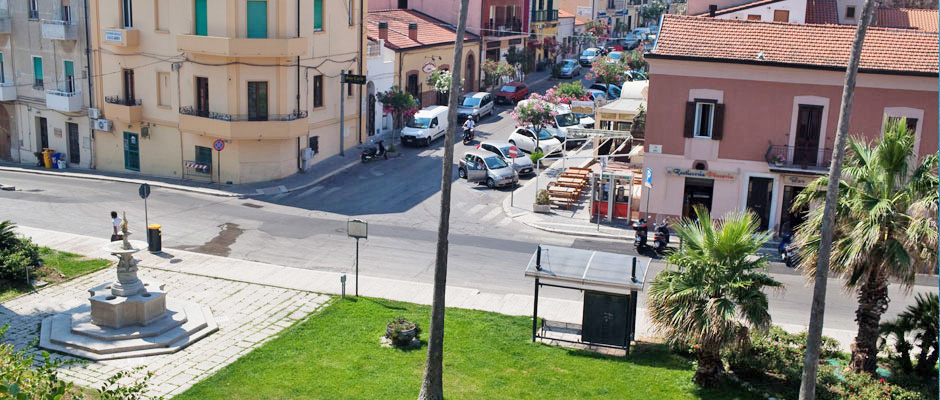
Montecastello is the scenic route of the Old Country Termoli. It can be reached from entrance of the village near the Castle or penetrating through the various alleyways.
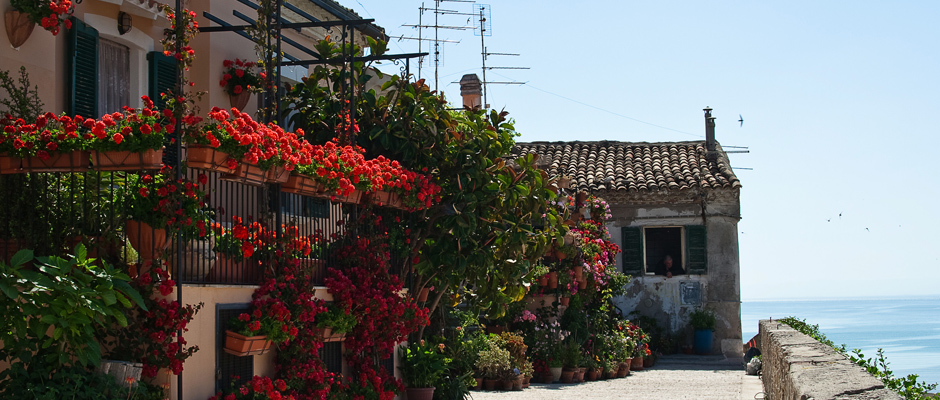
Montecastello is the highest part of the Old town and overlooking the ancient town walls where enjoy a panoramic view from one side to the promenade of Sant ‘Antonio and the Vasto Gulf, the other overlooking the city center and moving a few steps with sweeping views of the harbor, the coastline of Rio Vivo and the Tremiti Islands.
THE PORT
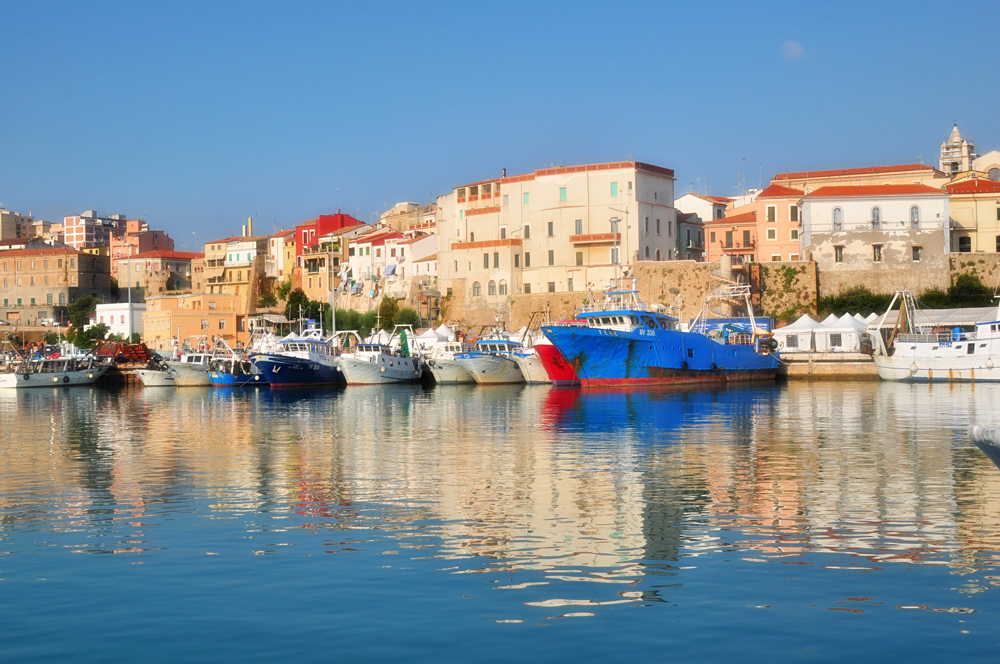
The port of Termoli welcomes locals and tourists and is one of the liveliest places in the city, both in summer when tourists flock to the pier and departure point for the Tremiti Islands, is in the winter when the flotilla of vessels Termoli and many motorbikes fishing in nearby Puglia, run between the wharf and the large supplying the city and the fish market fresh fish.
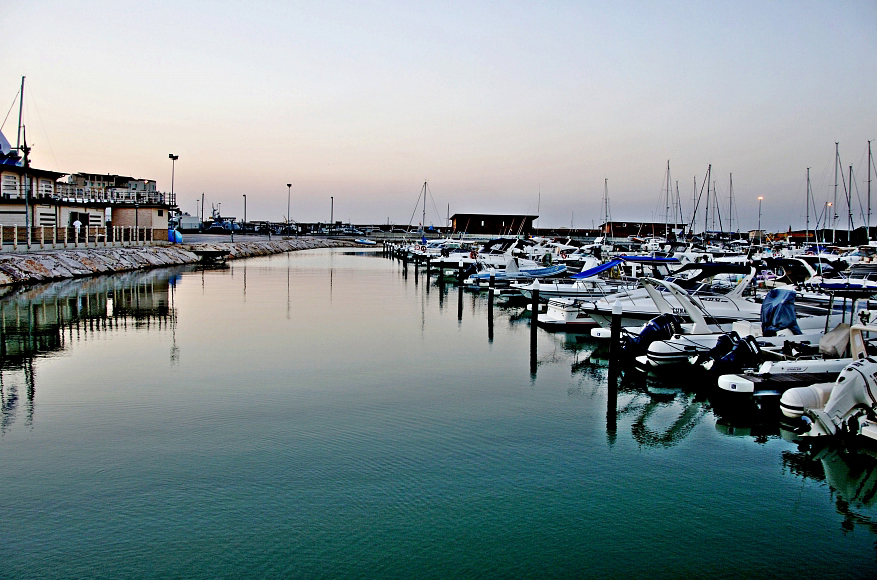
In 1838 the flotilla was composed of 5 boats, 3 paranzelle, 5 and 2 trawlers pilagli, today there are about thirty fishing boats between the big and the small fishing.

Ate the port of Termoli, on the south jetty where there is also the old lighthouse, you can visit the nursery of mussels where buy not only the mussels as well as clams, oysters, cockles, scallops and lupins (local clams smaller and very tasty). At the port of Termoli they have their headquarters offices of the Harbour and the Guardia di Finanza.
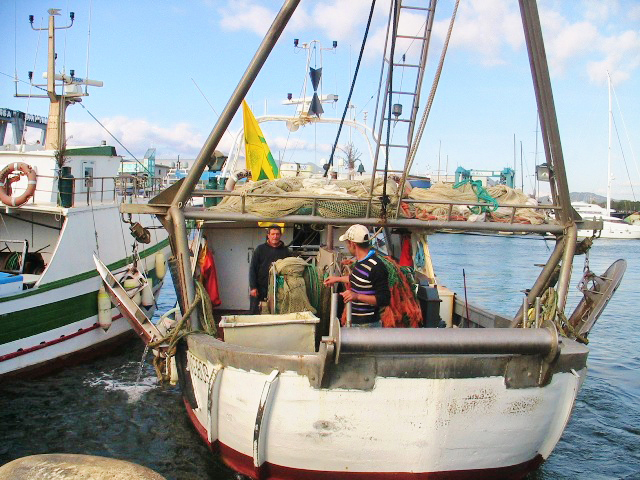
it’s from the port every year, August 3, from time immemorial, the procession to the sea of the Patron Saint of Termoli, San Basso; while at the end of the month of August is held the Festival of the Fish right in the square of the port on this occasion welcomes thousands of people who love fish fry, fireworks and summer evenings.
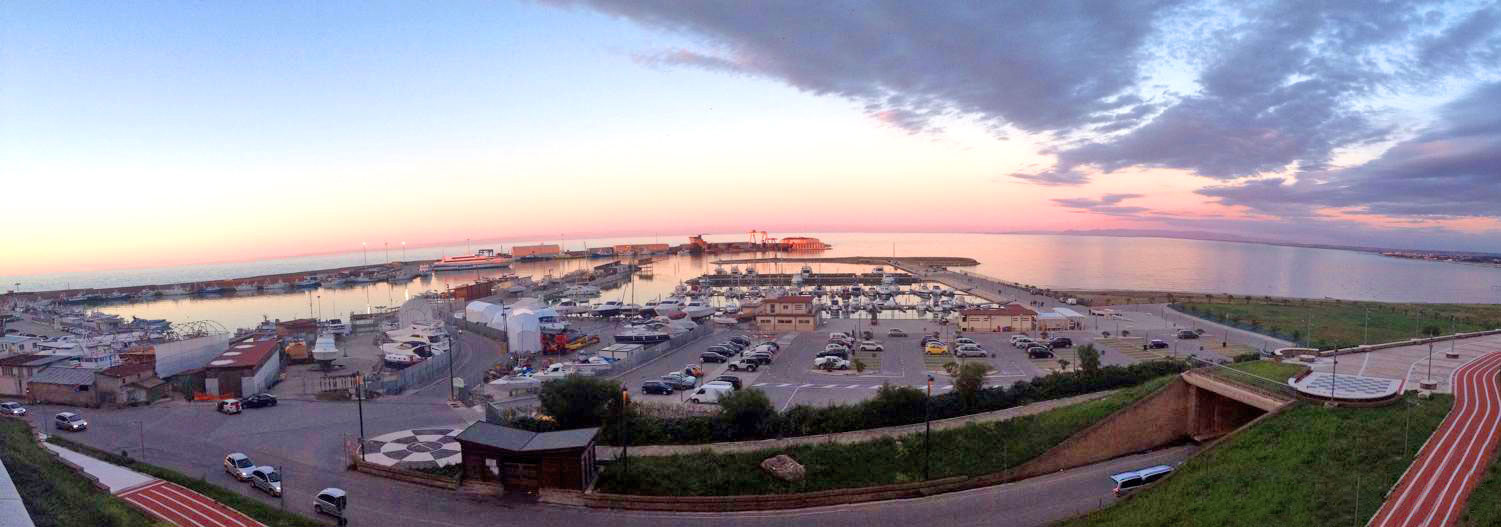
Other events take place in the great square of the port, such as concerts and exhibitions attracting visitors from around the Molise and also from neighboring regions. A beautiful panoramic view of the harbor along the viewpoint of Via Carlo del Croix.
THE MARINA
Marina di San Pietro is a welcoming and elegant structure that allows the mooring 300 boats, from 8 to 30 meters. Boaters found in the port Marina di San Pietro numerous dedicated facilities as technical area, showers, bike rental, pick-up service at the loading points of motorboats as well as several opportunities for dining and entertainment.
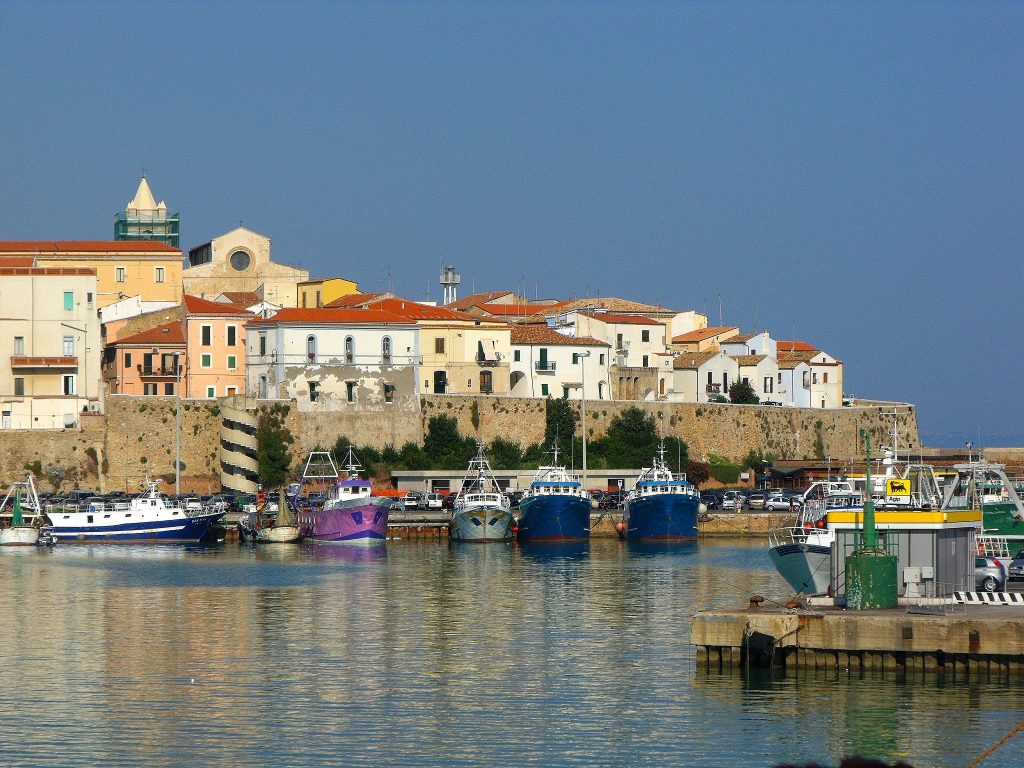

Indeed in the square behind the jetties you can enjoy the excellent termolese cuisine, based on fish. The hotel bar is a place of relaxation from which you can enjoy a picturesque view of the nearby Borgo Antico especially at sunset.
THE NATIONAL COURSE
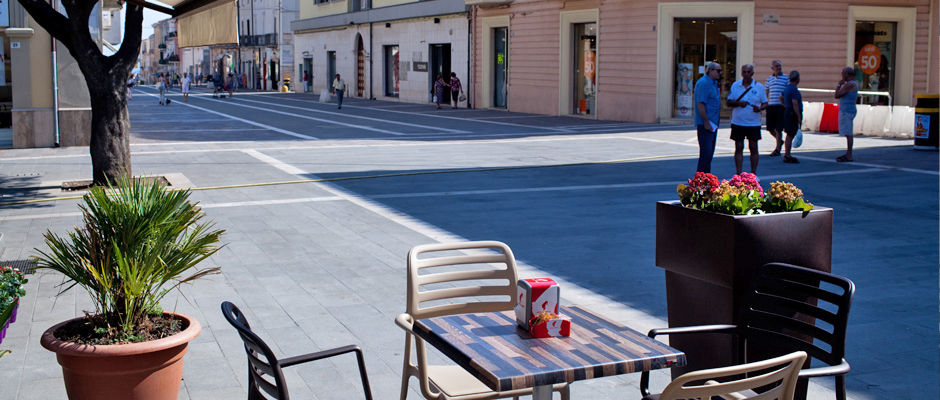
The National Course is the heart of the nineteenth-century town, is the center of town life, the way of walking and shopping. It was built around 1850 and within a few years became the most important avenue that connected the old city, squeezed between the walls of the village, the new Termoli.
The National Course crosses Corso Umberto I, the avenue that leads to the railway station.
MARKETS
The local markets are always crowded by the Termoli people and tourists who like to choose the freshest and the best ingredients.
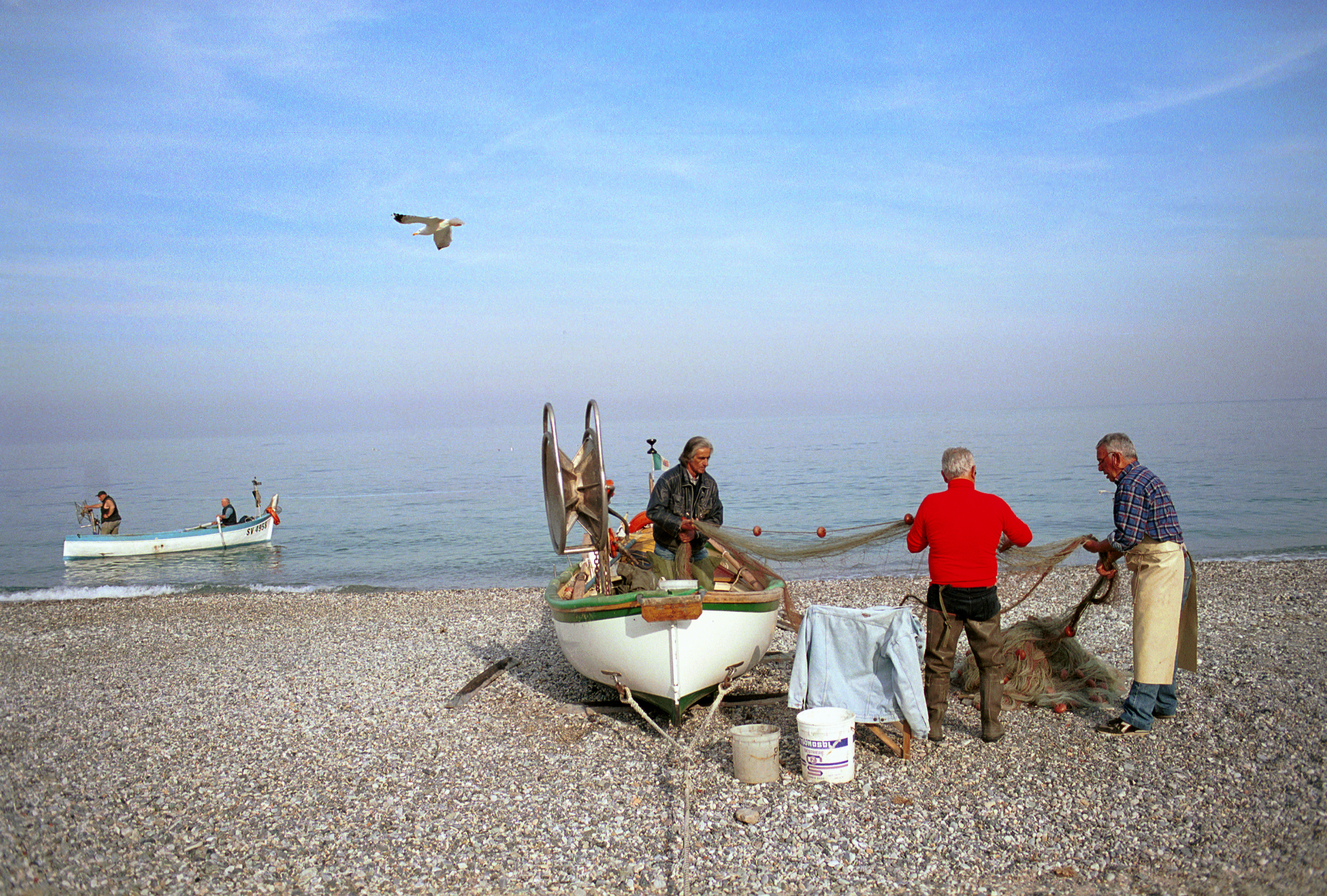
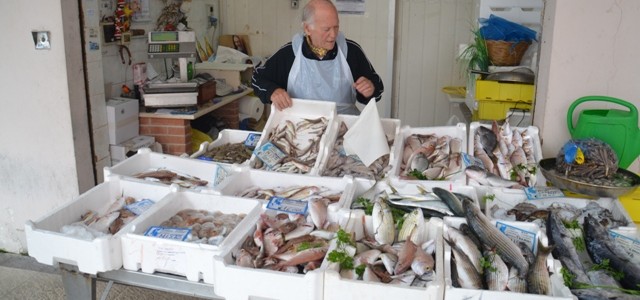
The scents and colors of Termoli markets are those for fresh fish and fruit and vegetables grown in the neighboring countries, as well as many varieties of breads and cheeses that are still produced as in Molise tradition.
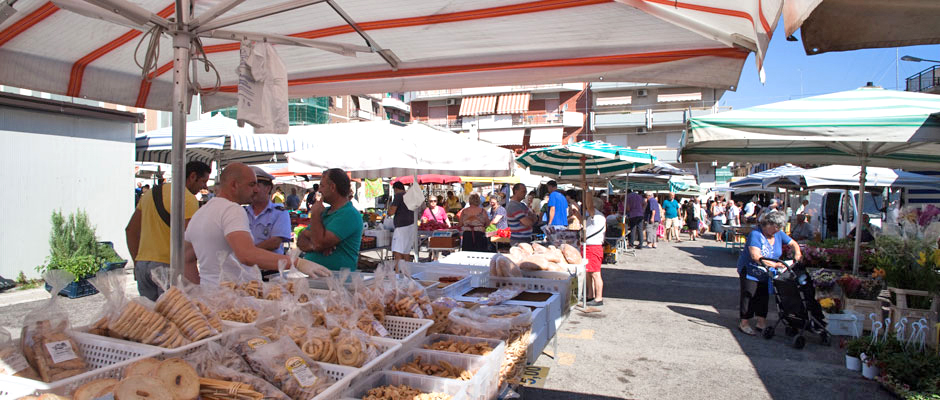
Every morning in Corso Fratelli Brigida takes place the so-called market of San Timoteo which takes its name from the adjacent church. There are fresh fish and vegetables from small local producers.
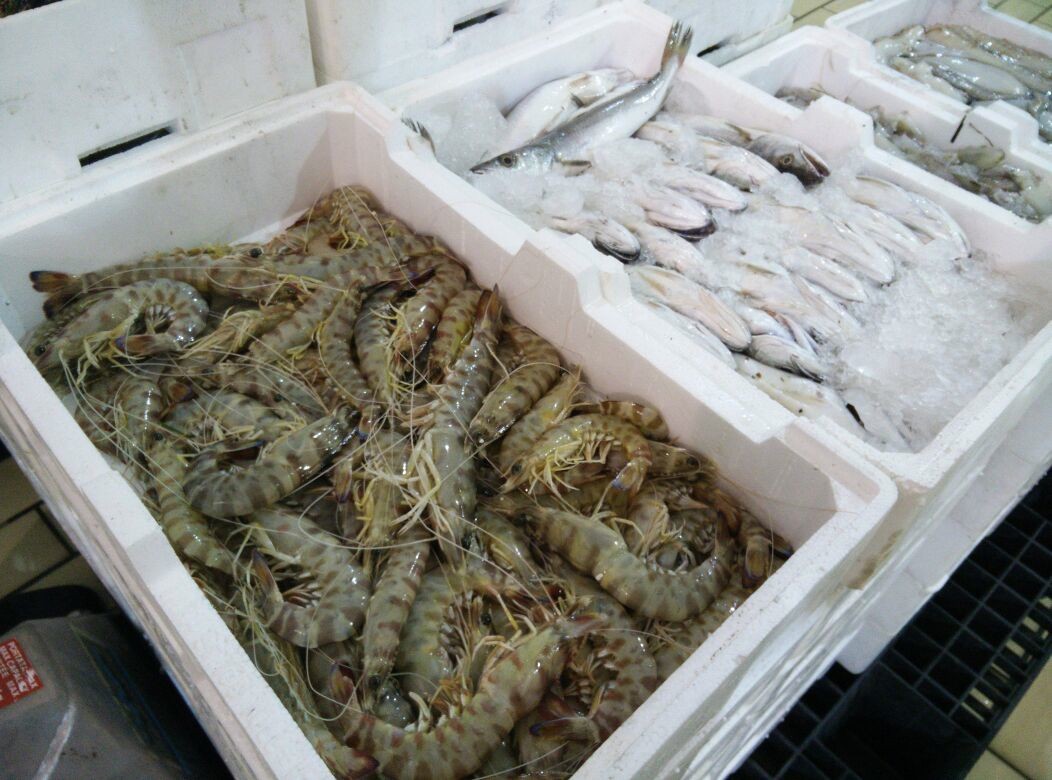
Every Tuesday, Friday and Saturday in Via Poland takes place another rich market where in addition to fresh fish and local vegetables lies fruits, cheeses, eggs and cereals all zero kilometer.
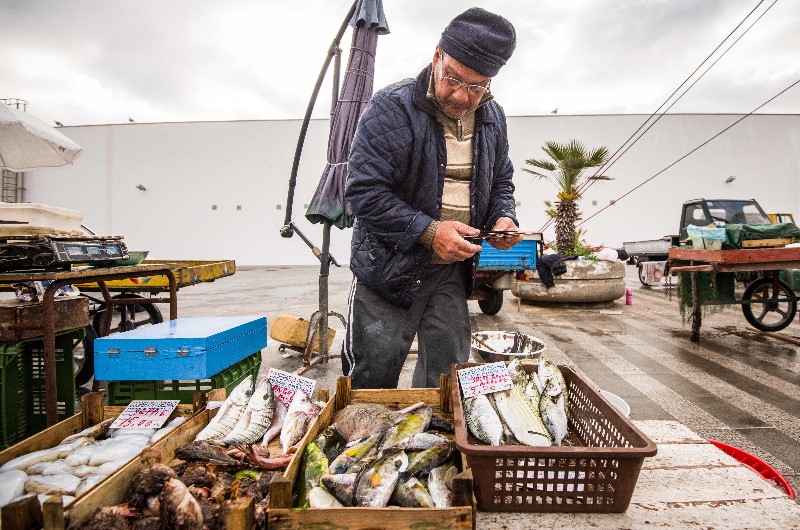
Also every Tuesday morning in the neighboring sleepers Via Poland there are many stalls selling clothing, footwear, textiles and home accessories.
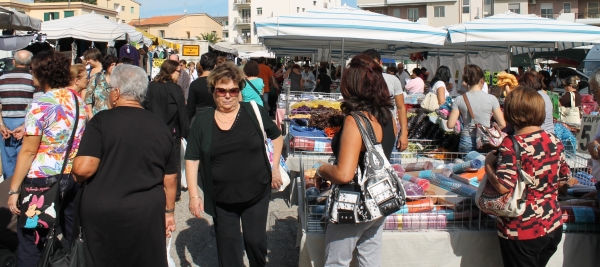
Every first Saturday of the month in the square, John Paul II takes place the Fair in which they participate peddlers coming from outside the region.
ANTHONY PIAZZA
Piazza Sant’Antonio is the viewpoint of the town center. It is located at the National Course and its particular position, offers citizens and tourists a breathtaking view of the old town of Termoli and the north coast, up to the Gulf of Vasto and the mountains of Maiella.
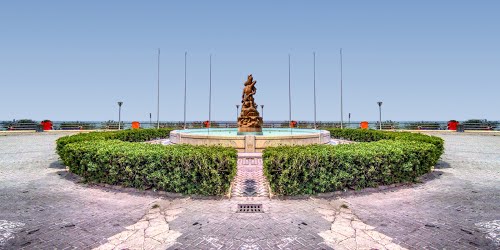
In the center of the square there is a large marble basin of the fountain dedicated to St. Anthony.
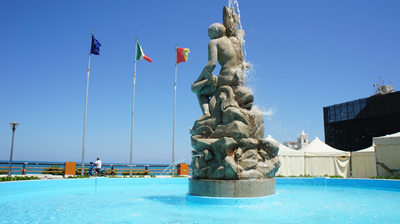
Piazza St. Anthony before the fifties was the Villa Comunale of Termoli, rich with flower beds and trees. Now houses the Civic Gallery on one side, the former church of St. Anthony in which we organize exhibitions, concerts and conferences, while behind is the Town Hall.
PIAZZA VITTORIO VENETO
Piazza Vittorio Veneto is for all Termoli “Monument Square” because in this, that has always been considered the lounge of the city, stands the War Memorial. Piazza Vittorio Veneto, once called Piazza Benito Mussolini is the meeting point for locals and tourists.
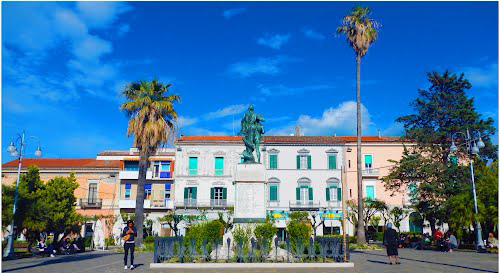
Is is a place of rest and refreshment thanks to the many bars and clubs, green areas and benches and is intended to place the various events of the summer in Termoli. The Monument of the Fallen, which opened August 18, 1926, is the work of sculptor Enzo Campobassano Puchetti and was erected to honor the fallen of the Great War.
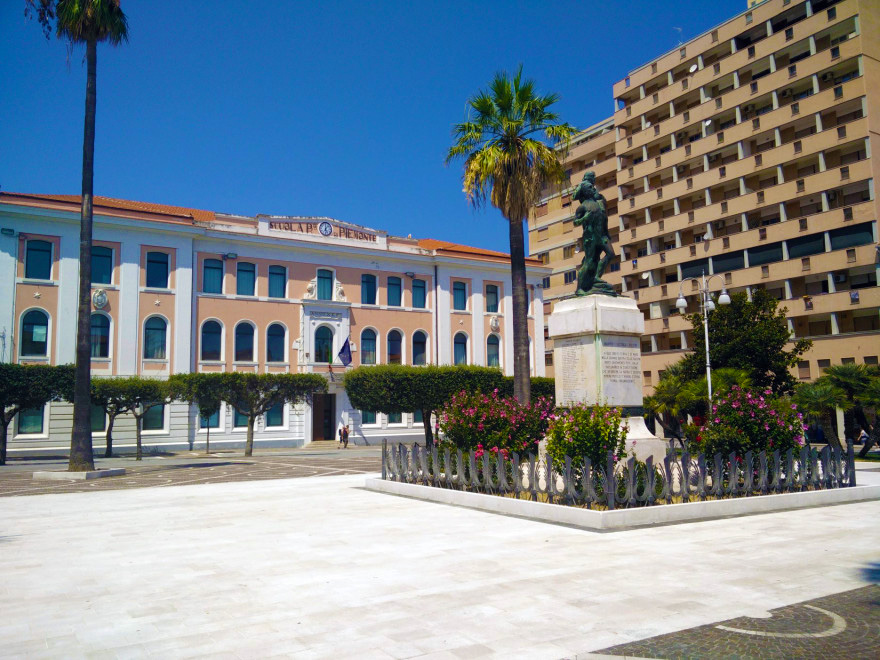
In Piazza Vittorio Veneto overlooks the primary school Principe di Piemonte, built during the fascist era, was a military hospital during the battle of 1943 when British troops of the Royal Marine ‘VIII army commanded by General Montgomery, landed in Termoli to free her German occupation.
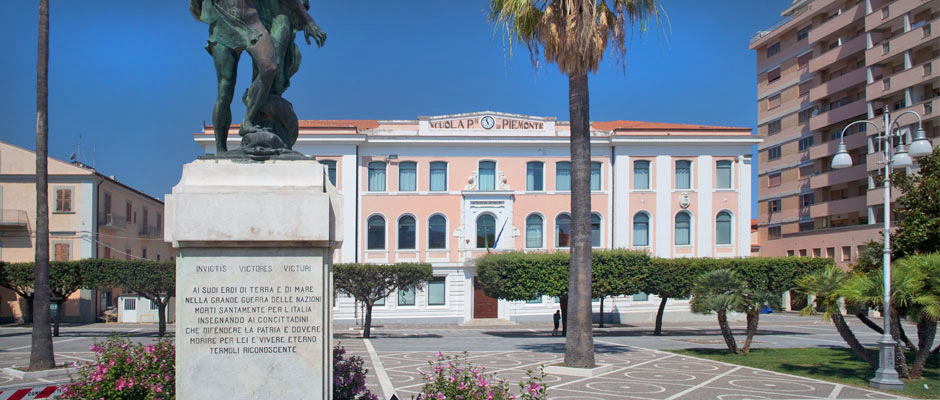
The Square monument is today on the facade you can see the fasces and the indication of ” fascist year “in which the school was built.
BISCEGLIE PIAZZA
Going up the spiral staircase that is located to the port there is Piazza Bisceglie. Here is locates the Institute “Jesus and Mary”, a place of Termoli History: first orphanage, at the end of the First World War was used as a teachers college and then to school. In the night between 2 and 3 October 1943 during the Second World War, in Termoli landed troops of the Royal Army, under the command of General Montgomery.
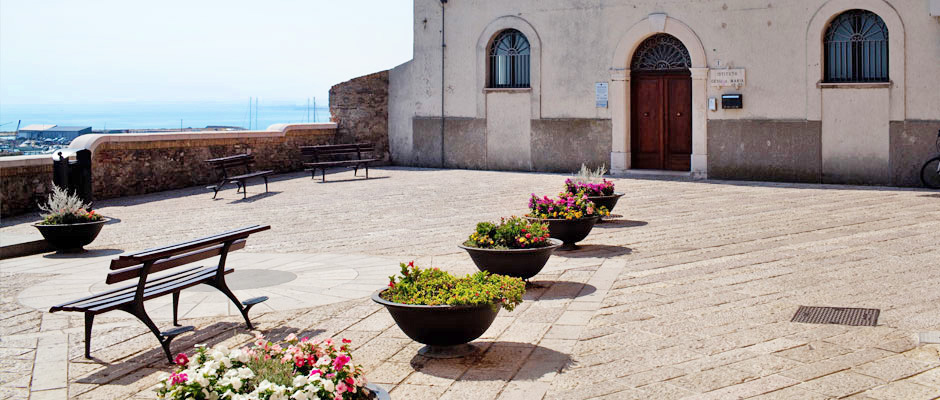
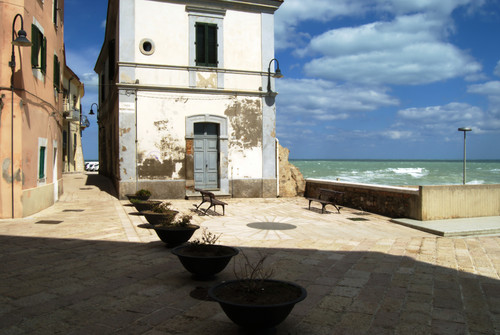
The institute was peacefully occupied by British troops landing and used as a first aid center for military and civilian casualties. In the eighties the Institute was the seat of a high school language equated to the end of the nineties a kindergarten section. Today within the institution are the offices of Caritas and the ministry of Solidarity Mensa.
SAN BASSO
In August, among the many events planned for the summer of conduct termolese, stands out the celebration of the solemn Saint Basso.
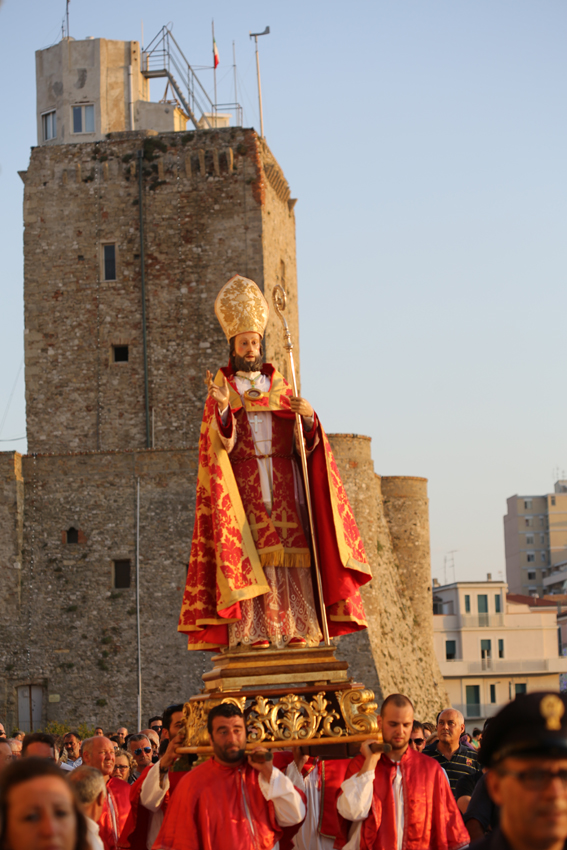
During the celebrations that take place in the two days dedicated to the protector of the city of Termoli, 3 and 4 August, the most evocative moment is the procession in the sea; statue of the saint, placed on the chosen exit from that fate, richly decorated, is brought into the sea accompanied by the fleet of other vessels laden with faithful and speedboats. The sea journey takes place between the Rio Vivo Beach and Sant ‘Antonio.
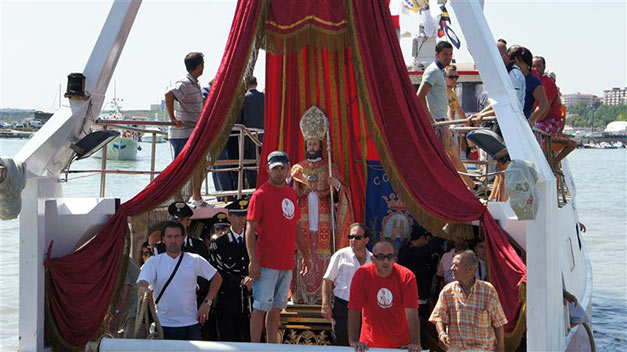
In the return in the harbor, the procession continues in the streets of the fishing village, where the statue stop all night. In the afternoon of day 4 the statue is brought in procession in the cathedral.
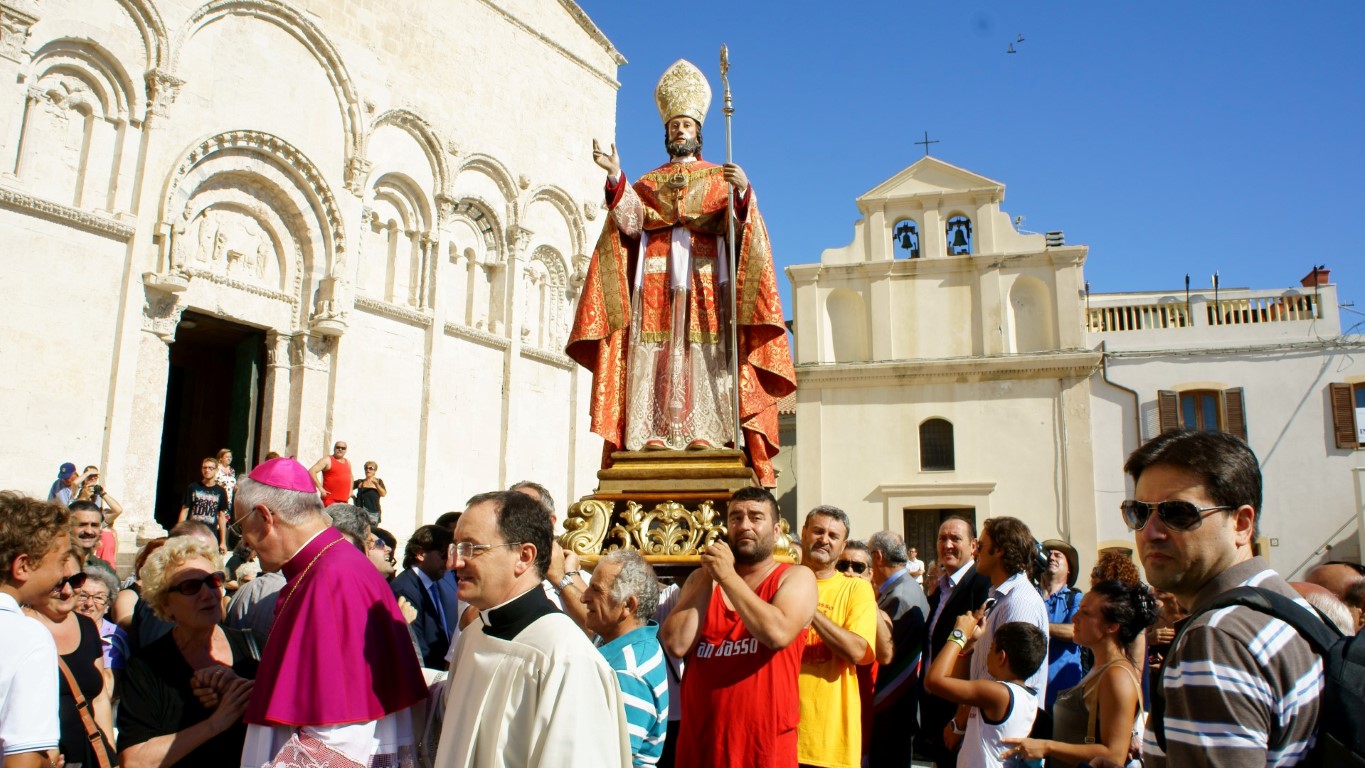
This party is for the population of Termoli a way to ask the Holy some sort of protection for the dangers of the sea and a good omen for fishing. Tradition has it that on the day of the feast, no one in the sea baths in a sign of devotion to the saint. For centuries, the crypt of the Cathedral, the area below the presbytery and different era than the current structure of the cathedral, is honored to preserve the relics of revered two bodies, those of Saint Basso and Saint Timoteo. The discovery of the Saints of St. Basso Bones took place in 1761, in the corresponding part of the left apse, while those of San Timoteo were found, in 1945, the south apse.
AUGUST
On August 15 it remembers the event of turkish landing with a historical and popular representation made of costumed extras and musicians. This event goes to reinforce what was the only sign left in the years of the historical event memory linked to pial Pasha, or the quaint and charming “Castle Fire.”
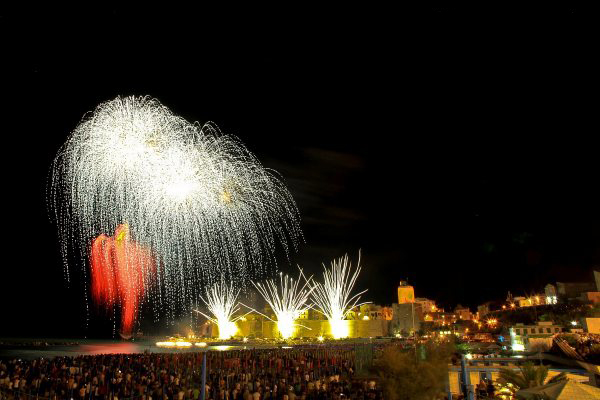
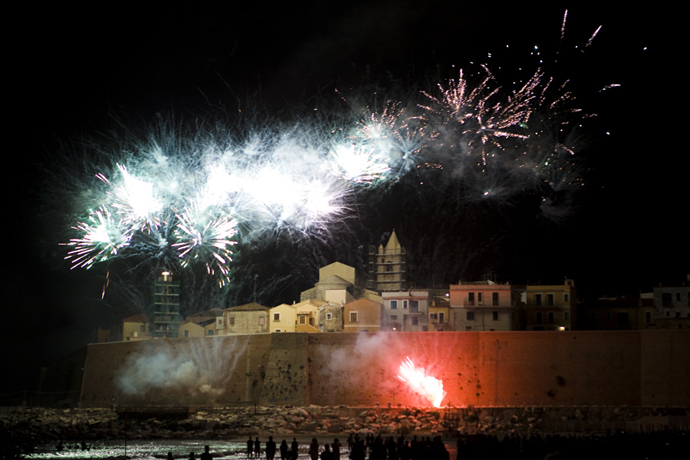
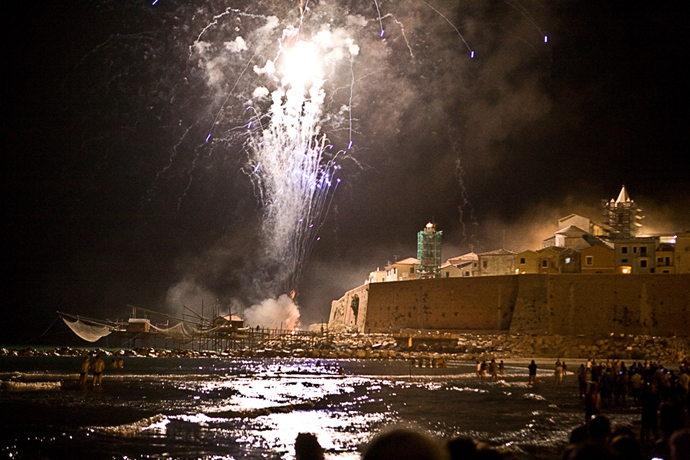
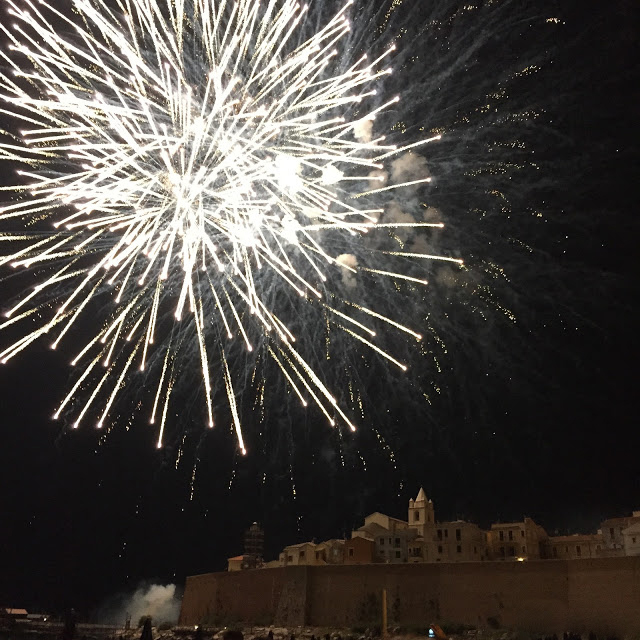
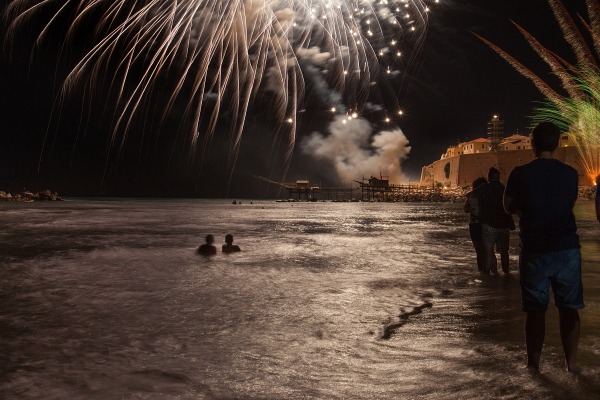
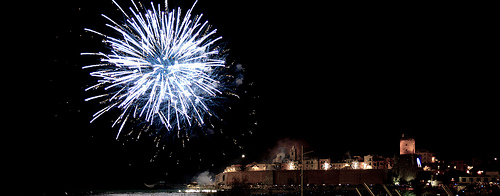
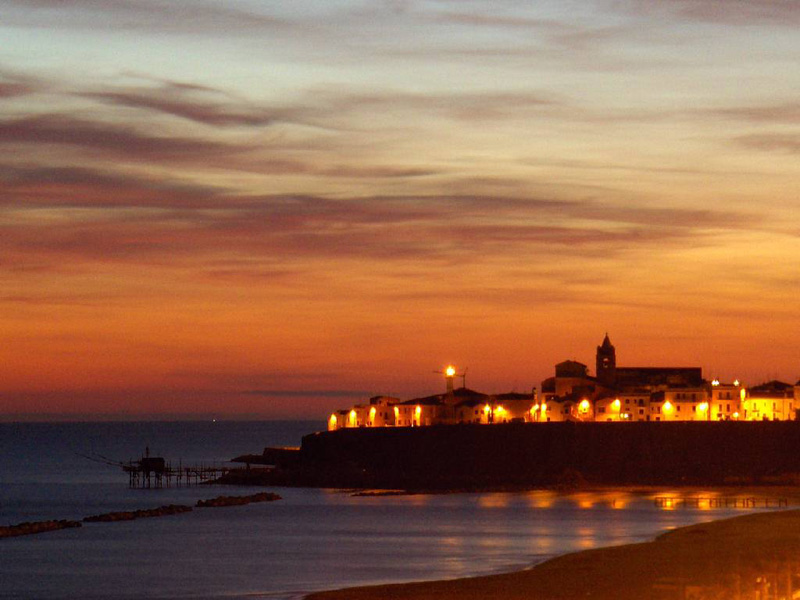
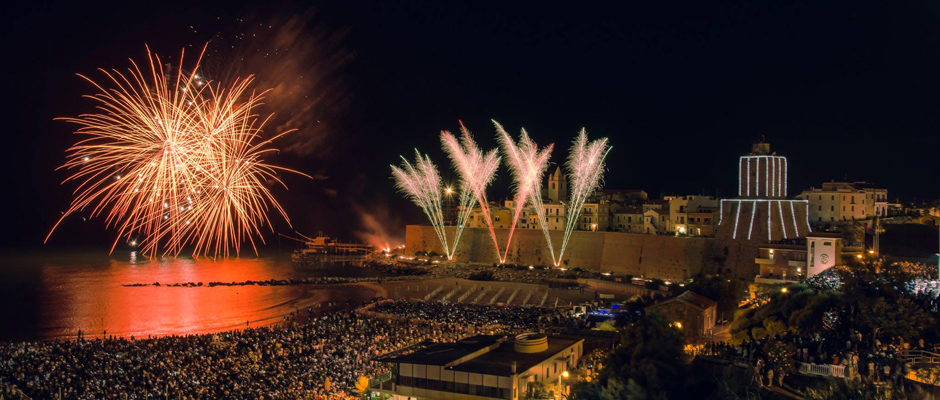
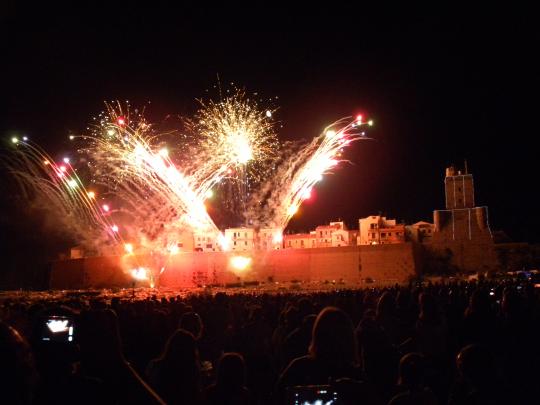
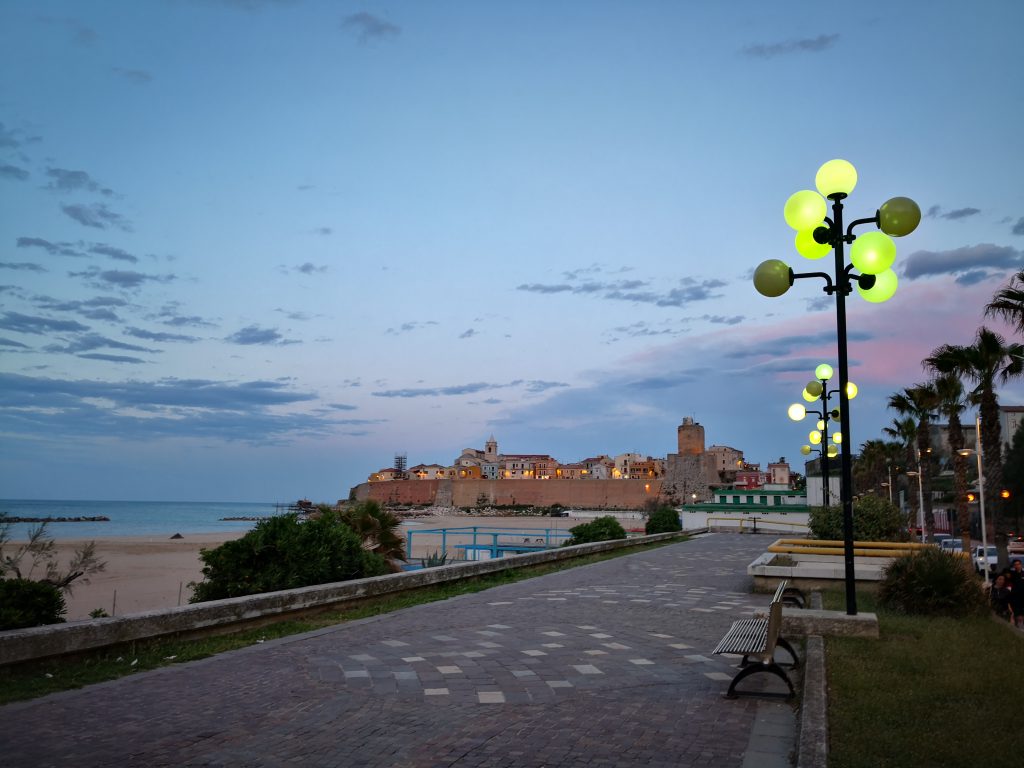
Photo Michele Crisci
This is just a simulation, with fireworks, of the fire caused precisely by the Turks and, more imaginatively and with historical faith, draws upon the ancient walls of village and its castle. This fireworks display is the only memory of the event that has always Aug. 15 is done with considerable appeal in the Adriatic town of tourists and curious.
FOOD
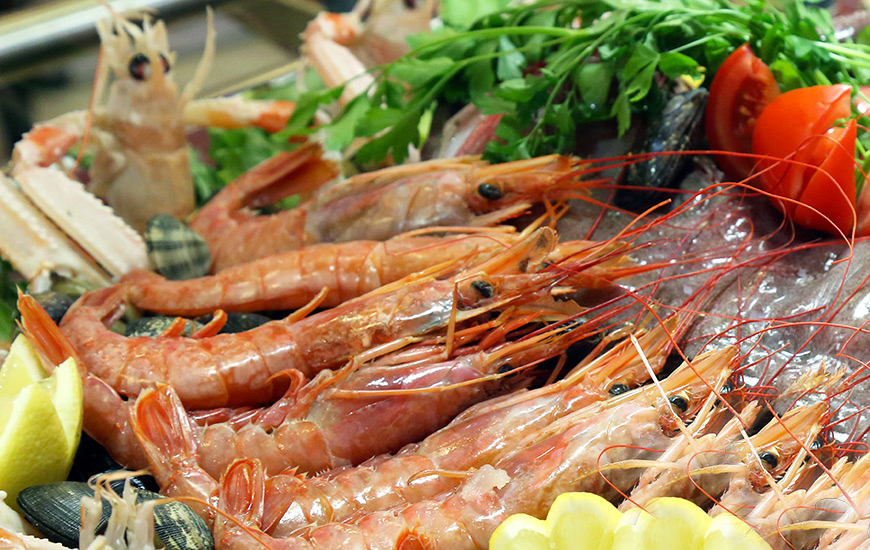
The local gastronomy is typically seafood way, but makes extensive use of oil produced in the nearby hills. The dish par excellence is ‘u’ bredette to termolese “evening meal of fishermen returning home from fishing boats.
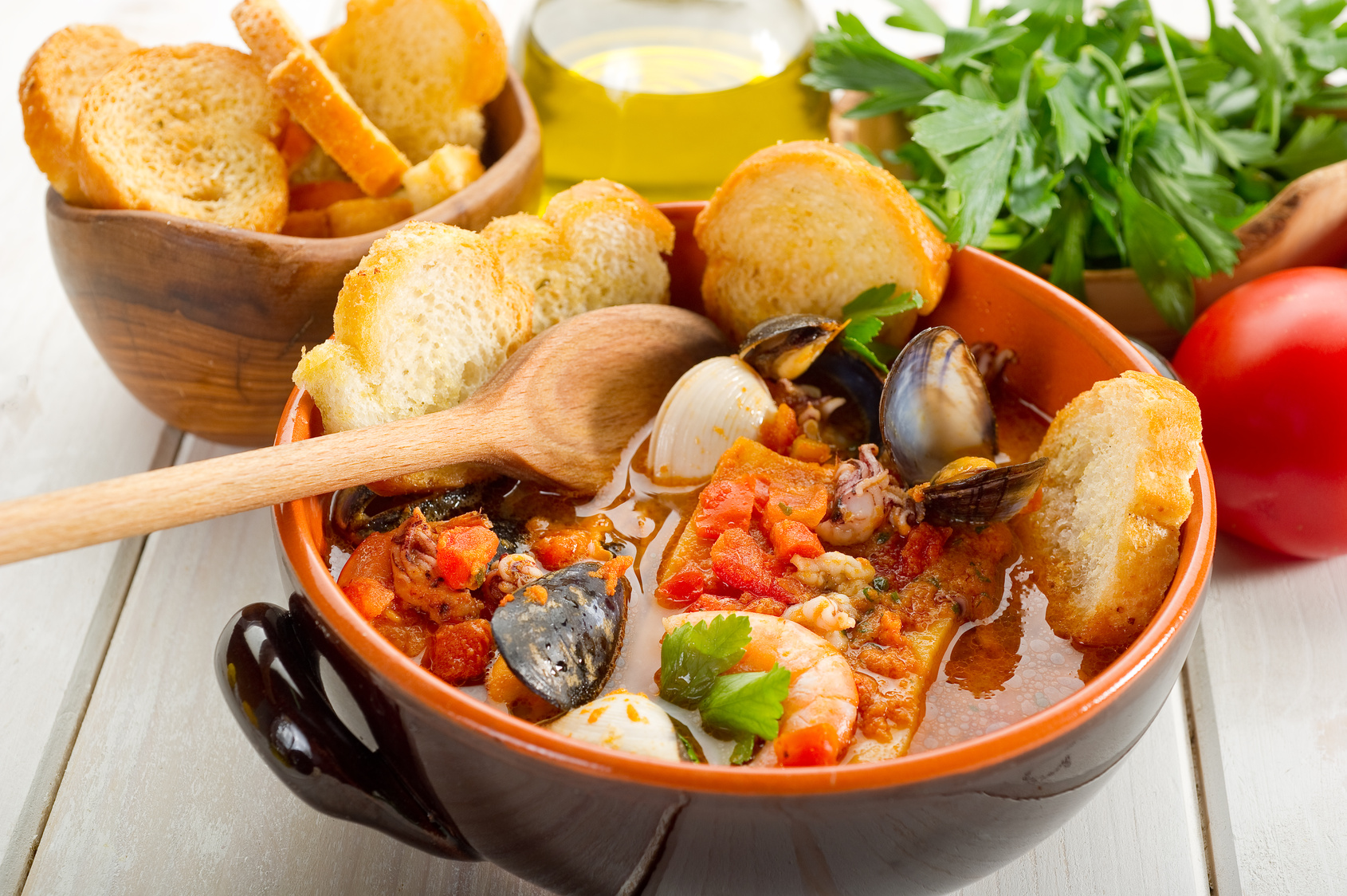
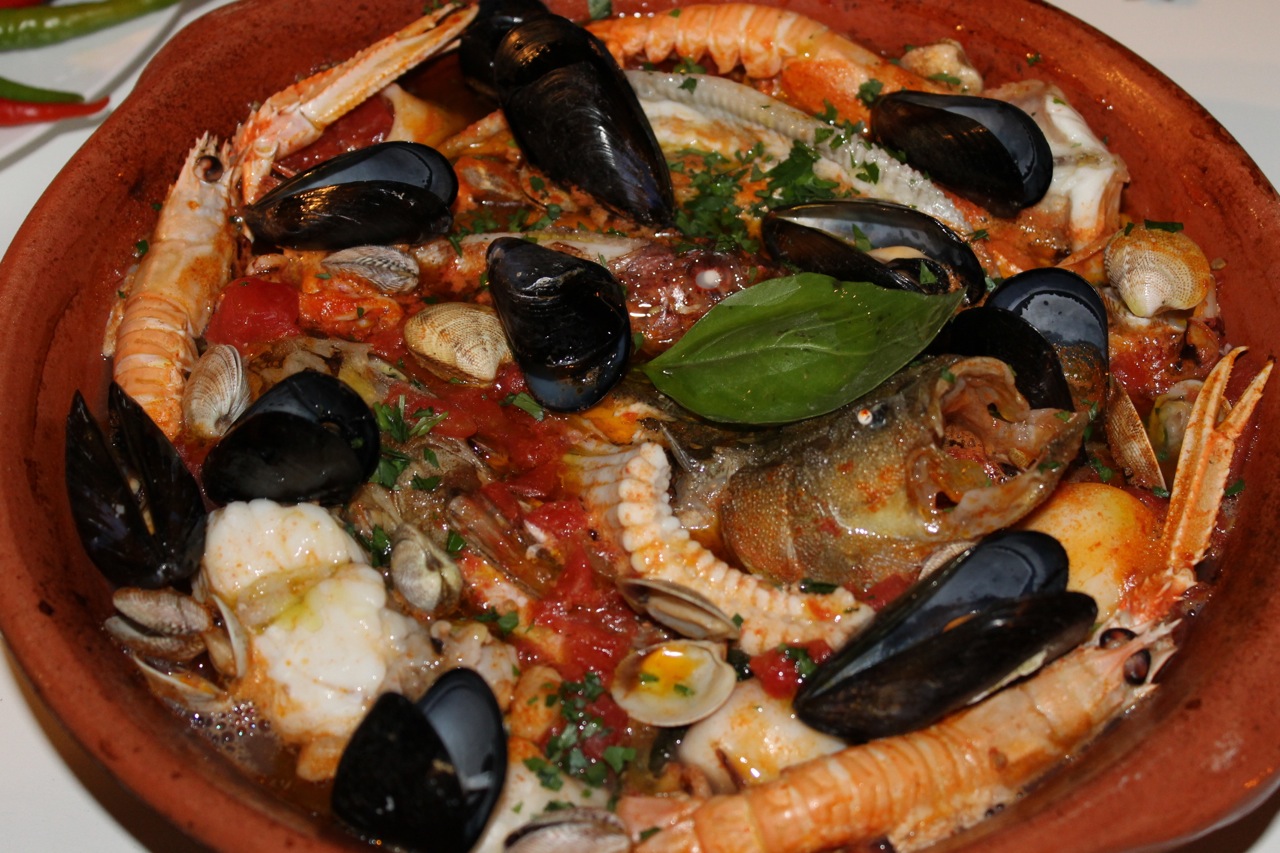

Other typical dishes are:
Pasta alla chitarra with a sauce of cuttlefish and / or squid;

The fesille (fusilli with vegetable sauces in white or tomato sauce);
The sécce (cuttlefish) and ‘pisille;
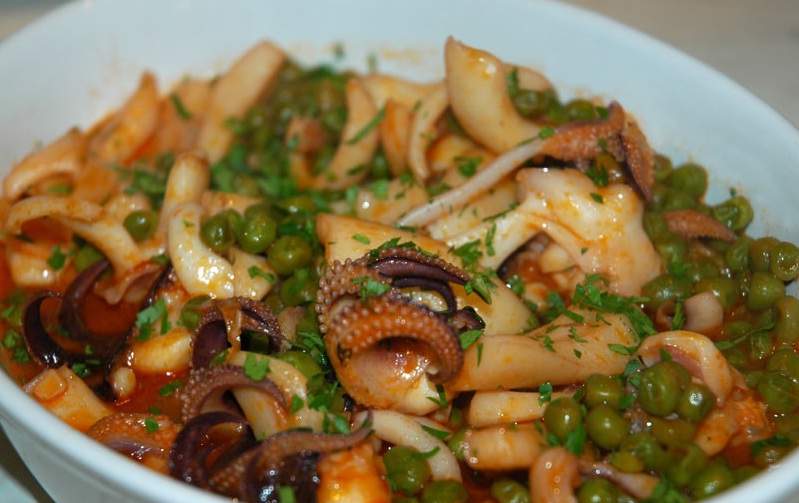
The pulepe ‘mbregatorie (Octopuses “purgatory”);

The trejje (mullet) to ‘ngorde (greedy);
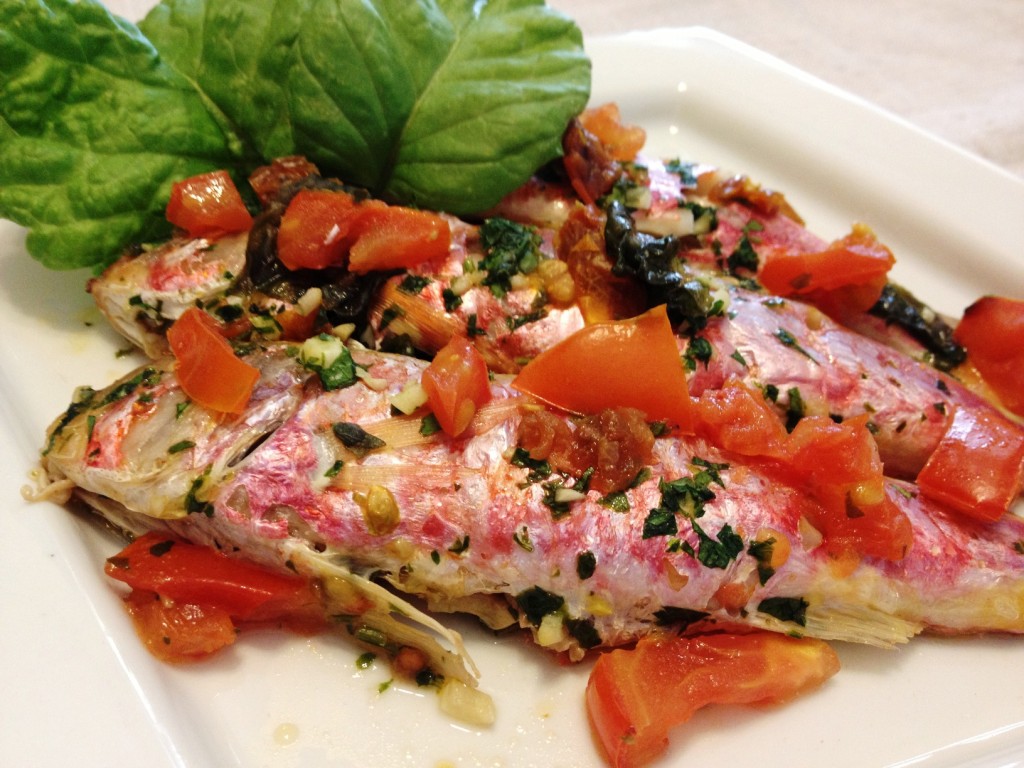
The trejjezzole (small red mullet);
U pimp (pimp);
A mertiscene (torpedo);
The tubettini with ‘the maruzzelle (tube pasta with sea snails);
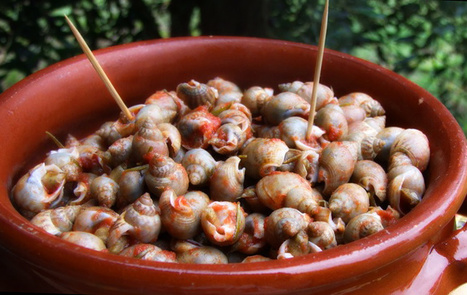
I curled pulepe (octopus in a pan with olive oil);
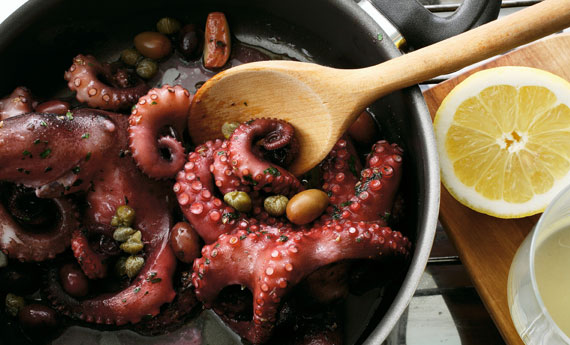
The Christmas scarpelle: leavened bread dough and fried;
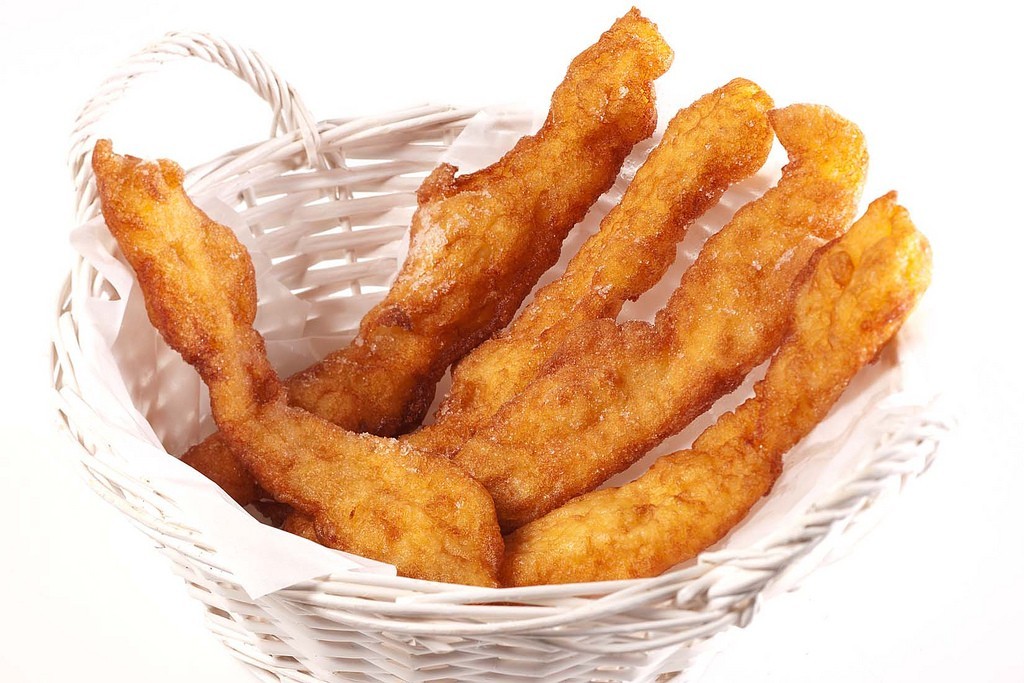
Neighboring countries in Termoli
San Giacomo degli Schiavoni (CB) 5.5 km
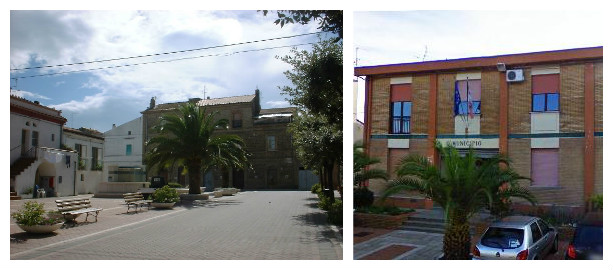
Campomarino (CB) 6.1 km
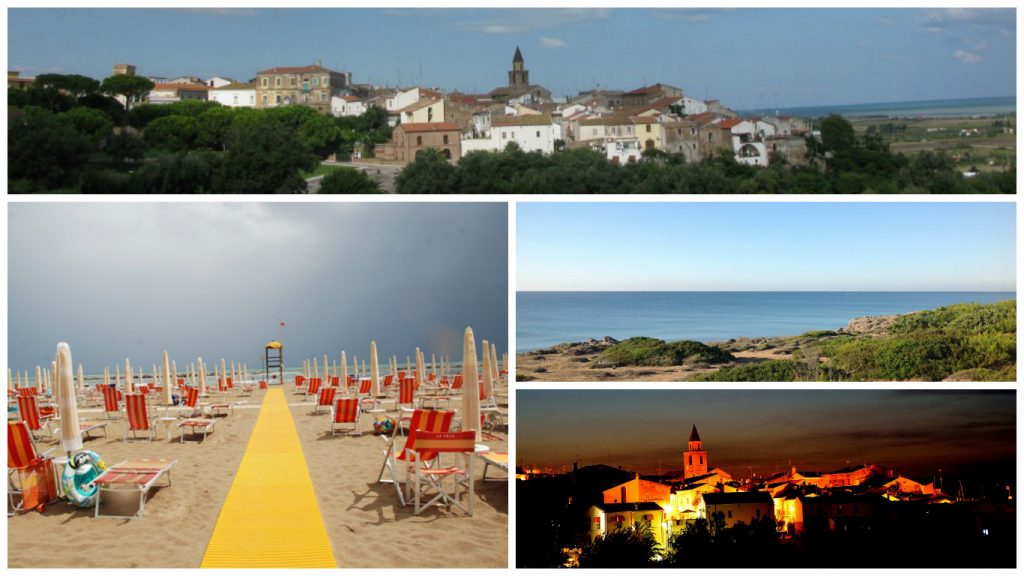
Portocannone (CB) 8.1 km
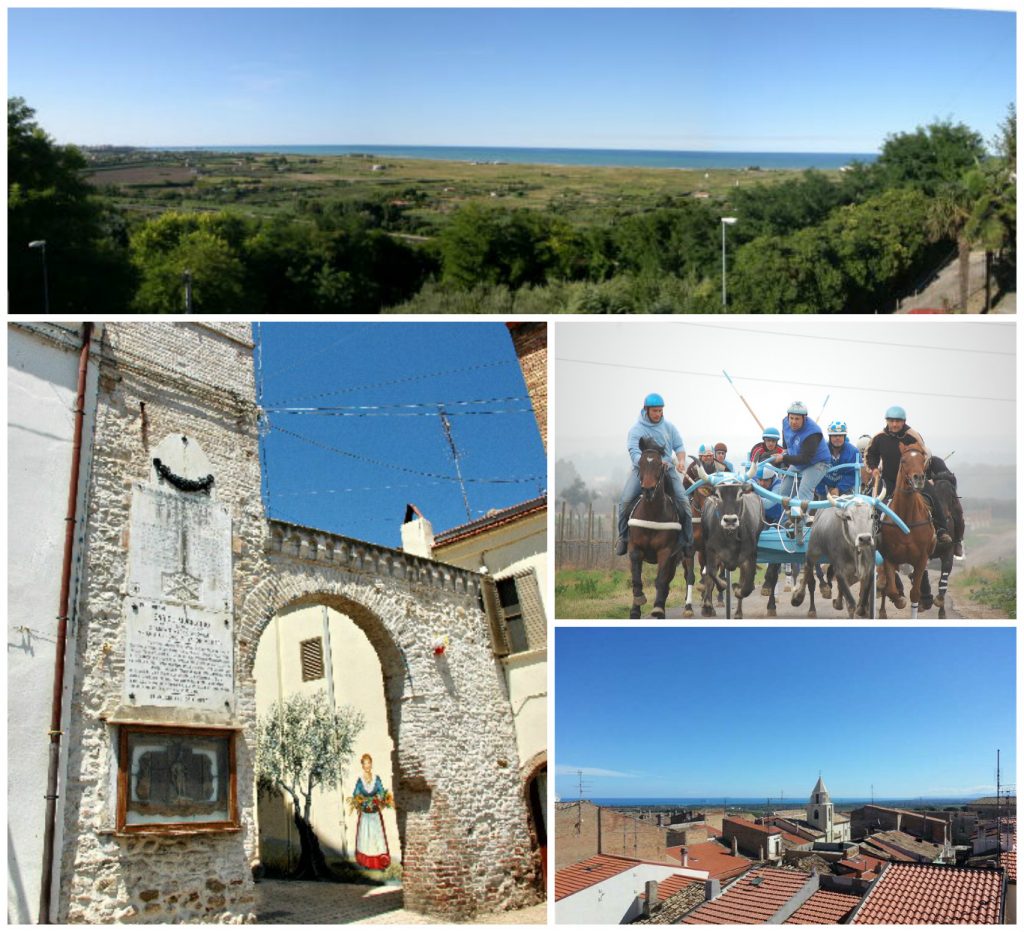
Guglionesi (CB) 11.3 km
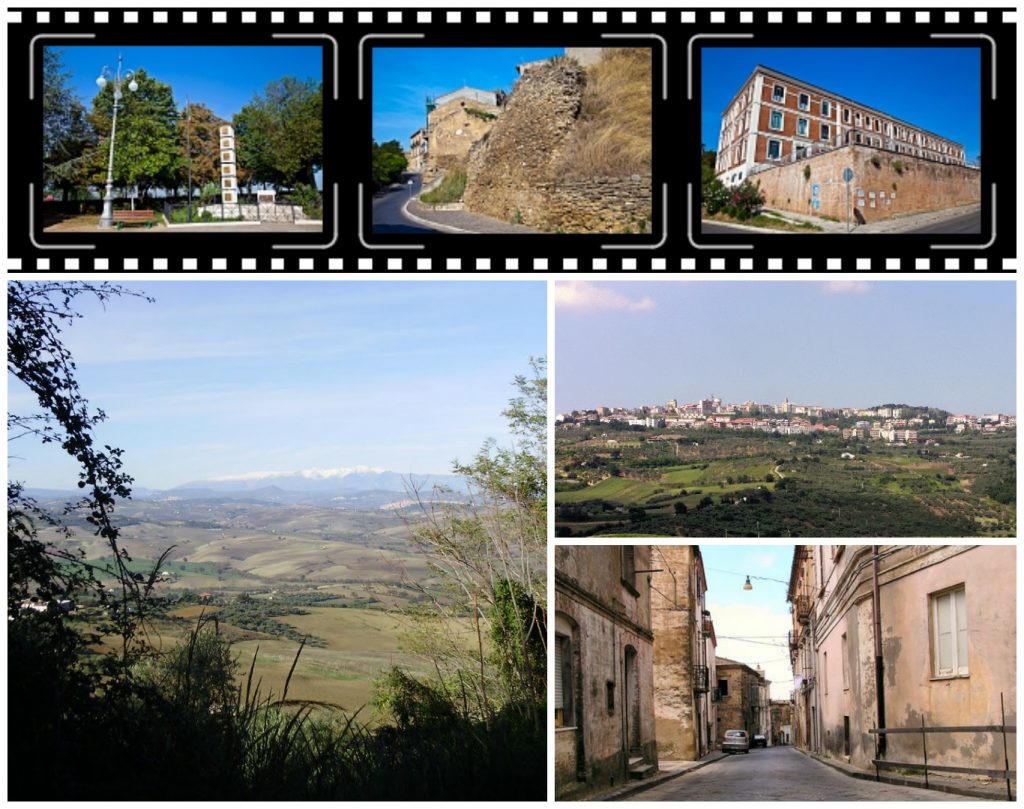
San Martino in Pensilis (CB) 12.7 km
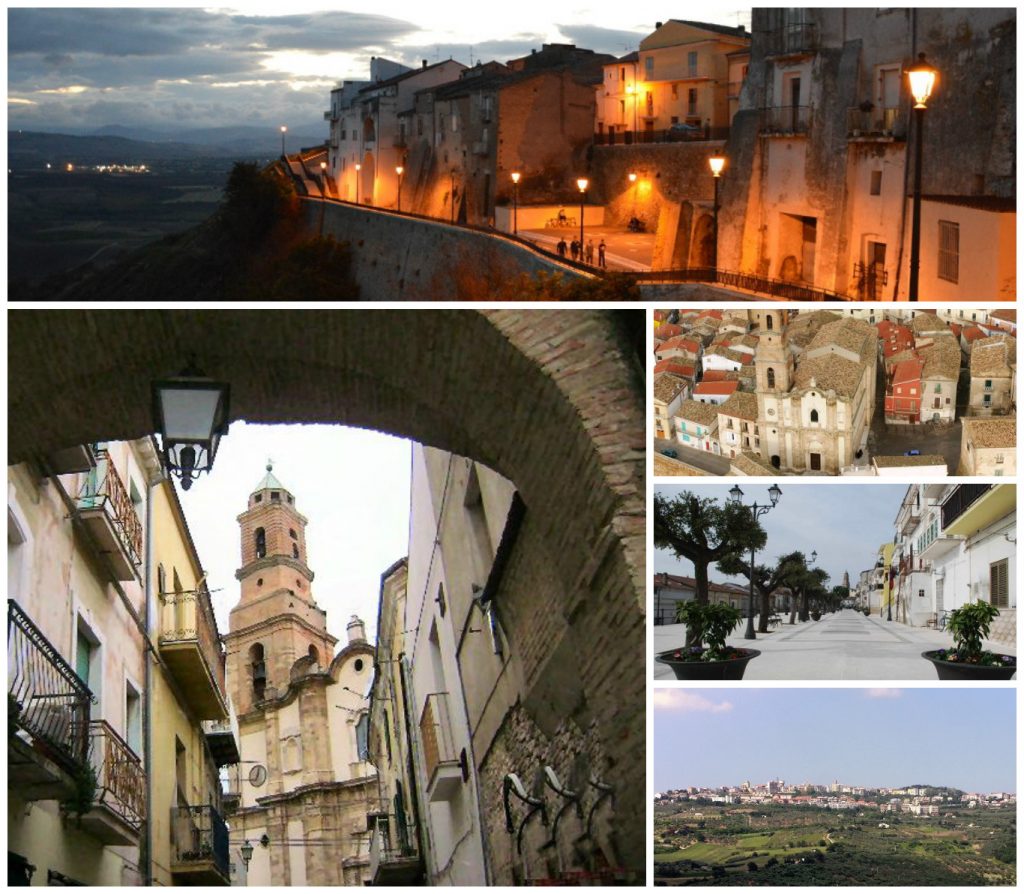
Petacciato (CB) 14.5 km
